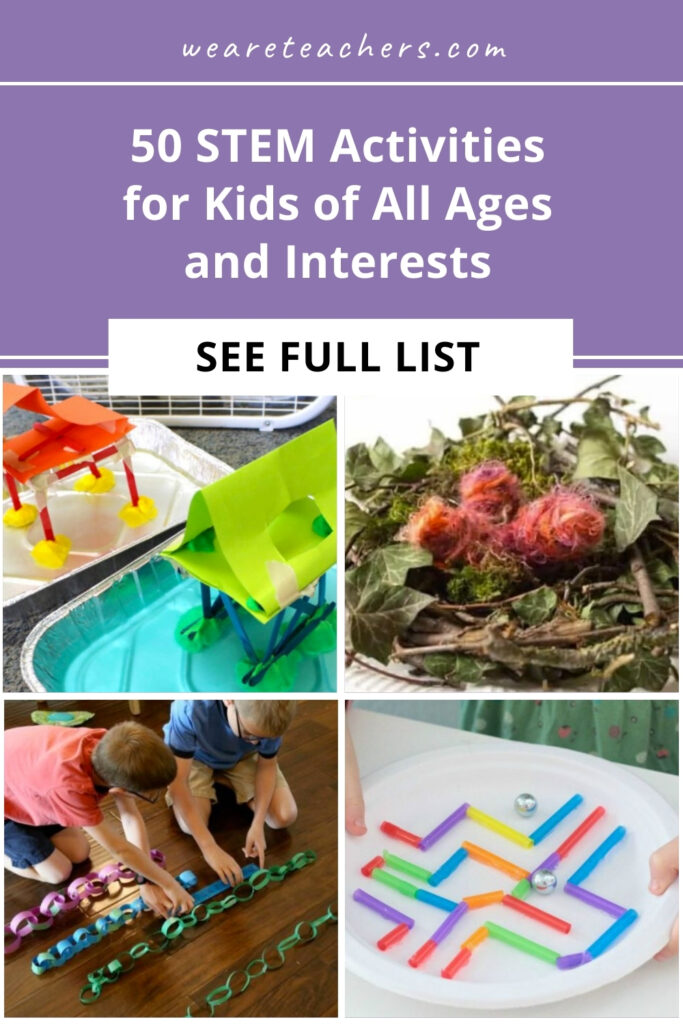These days, STEM learning is more important than ever. Science, technology, engineering, and math are the keys to many modern careers, so a good grounding in them from an early age is a must. The best STEM activities for kids are hands-on, leading students to cool innovations and real-world applications. Here are some of our favorites, with challenges and experiments that will really get kids thinking about how STEM plays a part in their everyday lives.
What is STEM?
To ensure activities are purposeful and aligned to standards, check out this quick video on what STEM means and how to use it in your teaching.
Want some quick challenges to try with elementary students? Get free printable stem challenge cards for grades K-5:
For more STEM activities for kids across a range of subjects, take a look at these ideas.
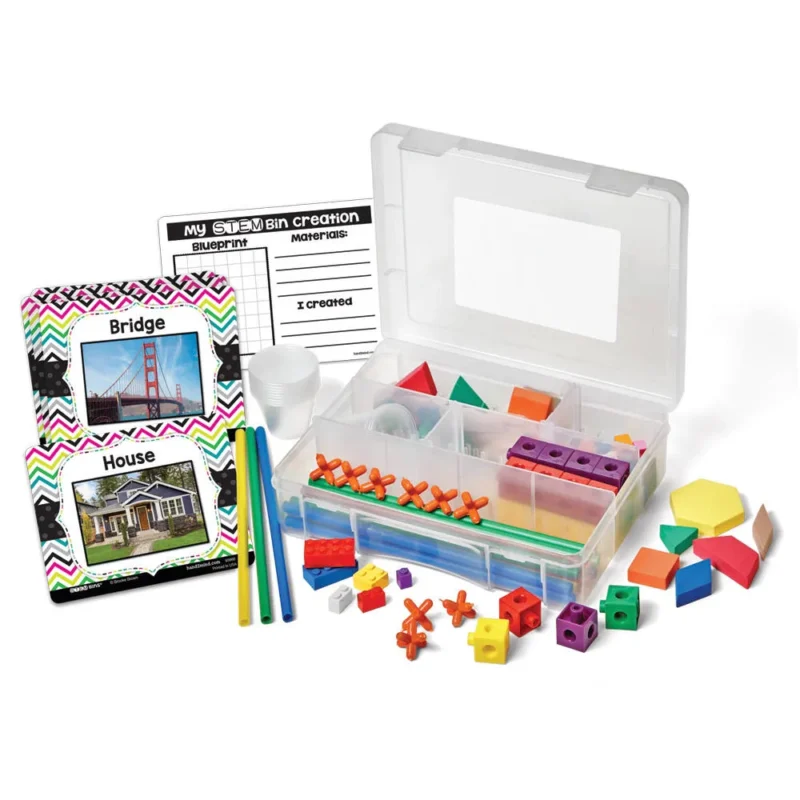
FEATURED PICK
1. Add STEM bins to your classroom
Prepare for a wide variety of STEM activities for kids with these cool bins. STEM bins encourage individualized, hands-on maker exploration and get students thinking creatively, inventively, and imaginatively.
Buy it: STEM Bins at hand2mind
2. Egg Drop Challenge
Test various types of materials to keep an egg safe when being dropped from a tall height. Compare and contrast the differences in designs and materials used to prevent the egg from cracking.
Check out these different ways you can try the Egg Drop Challenge.
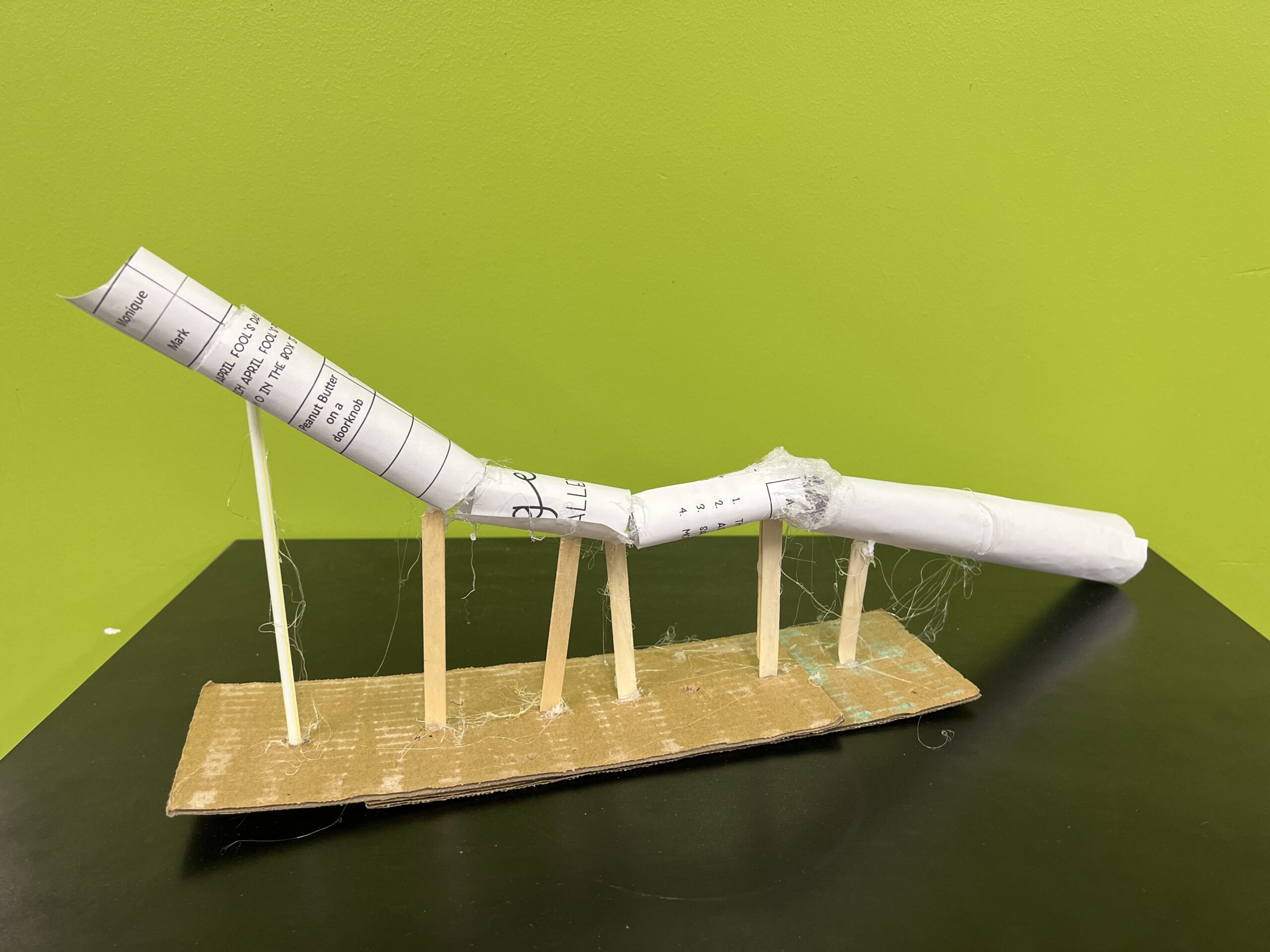
3. Engineer a marble roller coaster
Explore potential and kinetic energy by building a roller coaster. Notice how the height of the hills changes the motion and speed of the coaster. For an additional challenge, time how fast the marble travels through the coaster.
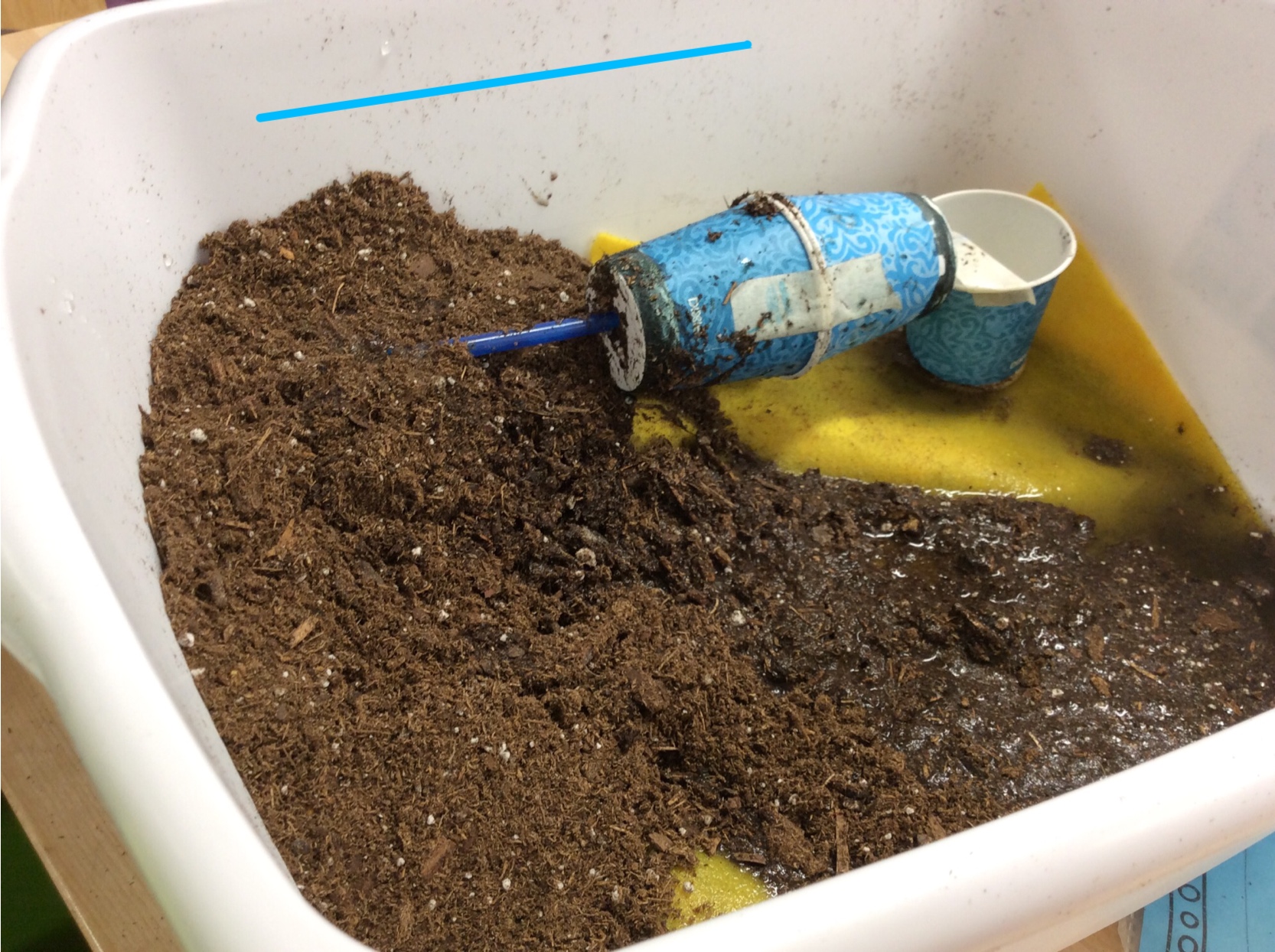
4. Find ways to slow soil erosion
Notice how land moves with water erosion. Have students engineer a solution that will slow down or stop the soil from moving when water is poured.
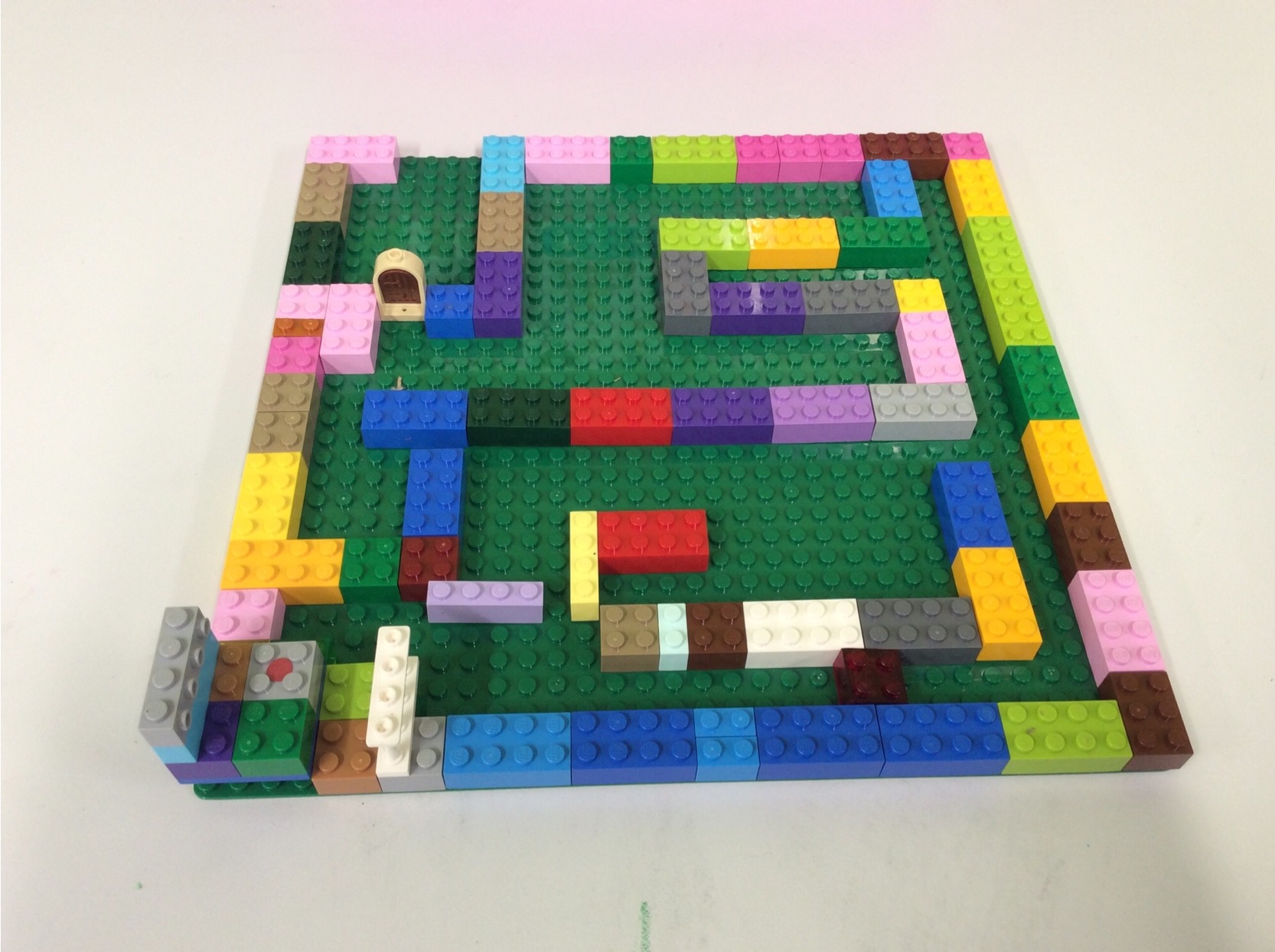
5. Use LEGO Bricks to build a marble maze
Students can engineer a marble maze using LEGO bricks on top of a base plate. Ensure the marble can pass through lanes and have a clear start and finish.
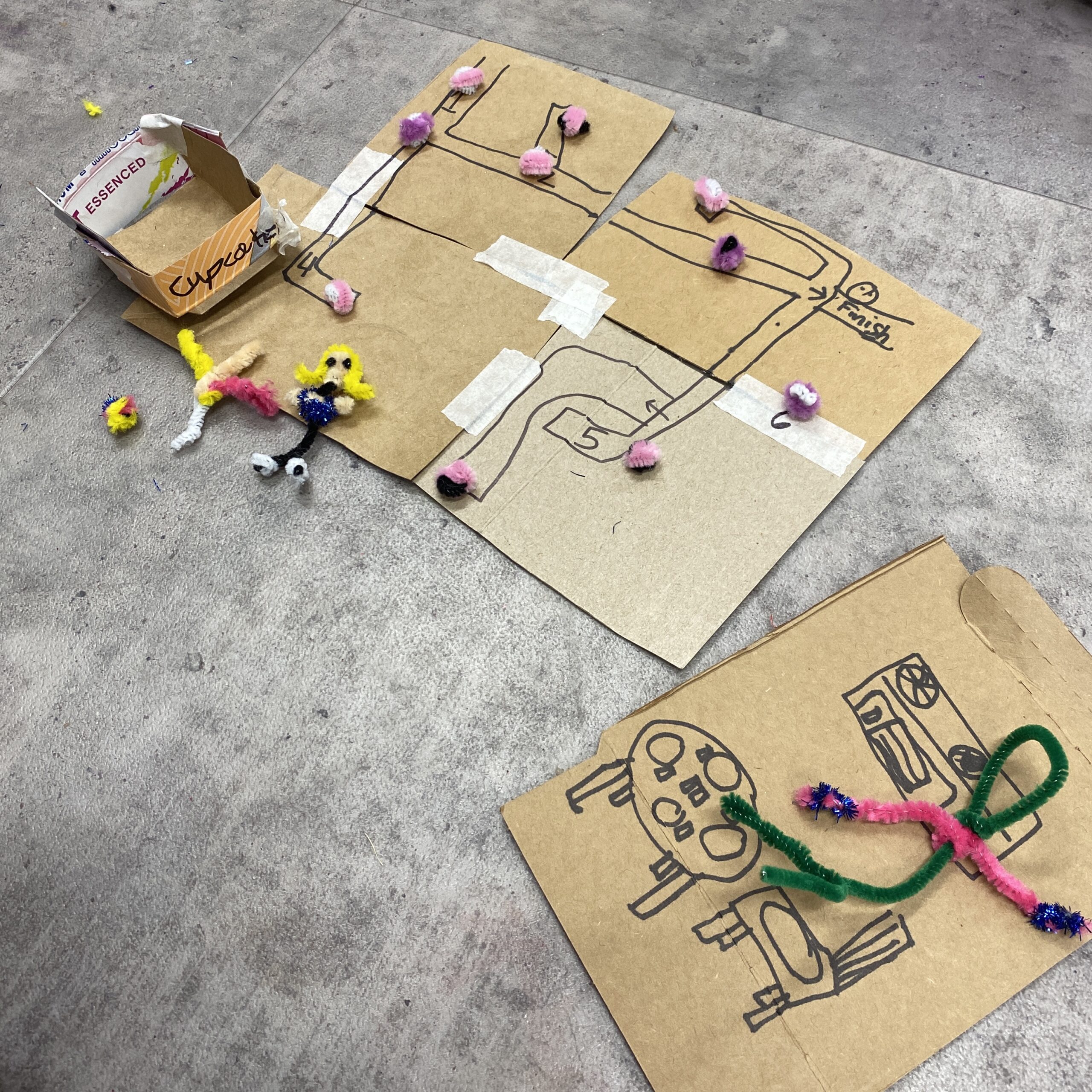
6. Build a game out of recycled materials
Using recycled materials, have students plan, write rules, and create a game. Test designs by playing games to ensure they work and rules are fair.
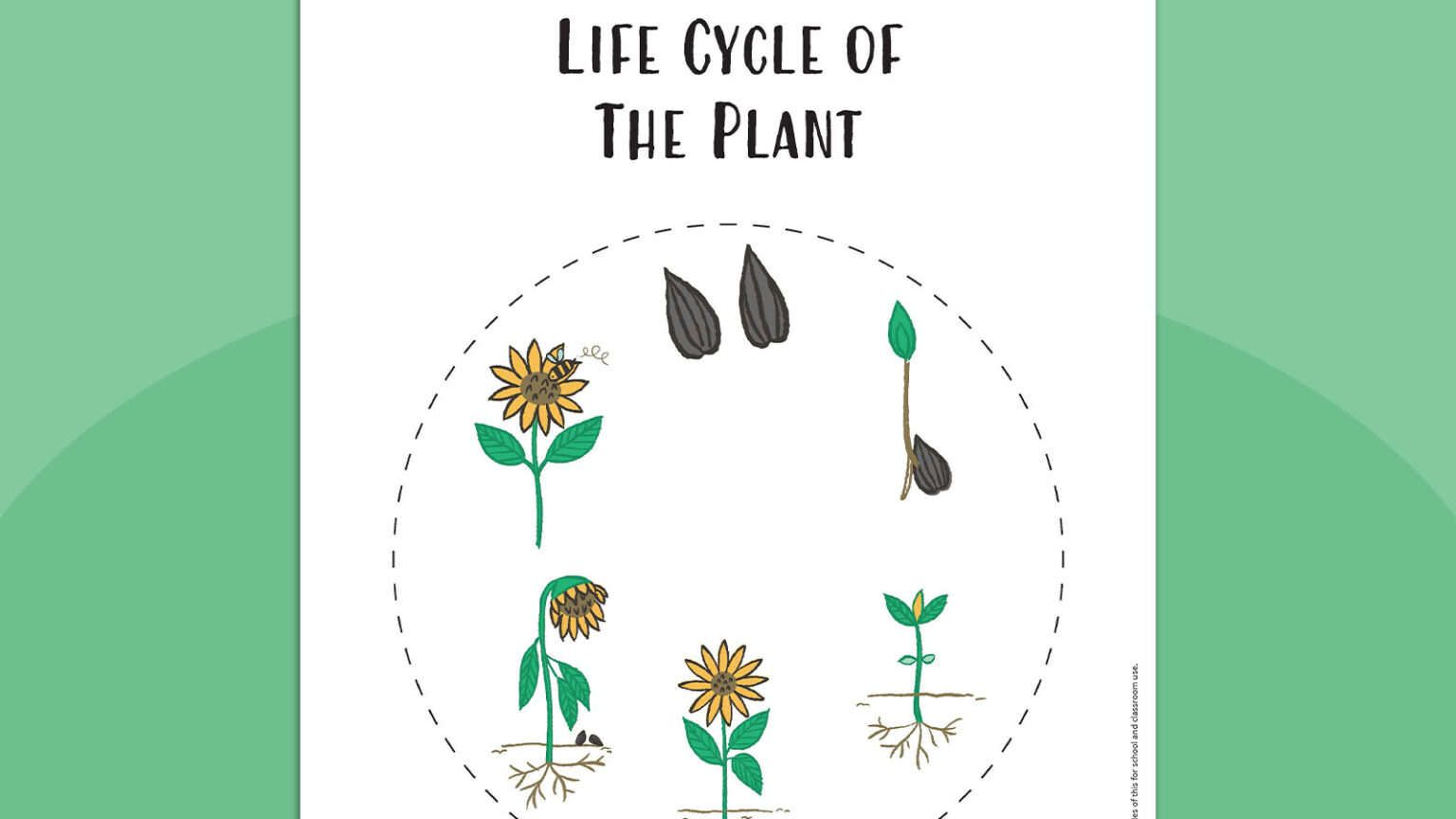
7. Design a plant life cycle model
Help students recognize how living things grow and change by designing a model to represent a plant’s life cycle. These can be built out of LEGO bricks, play dough, or you can even use this plant diagram as a starting point. Also, check out these Google Slides we put together to use while teaching students about plant life cycles.
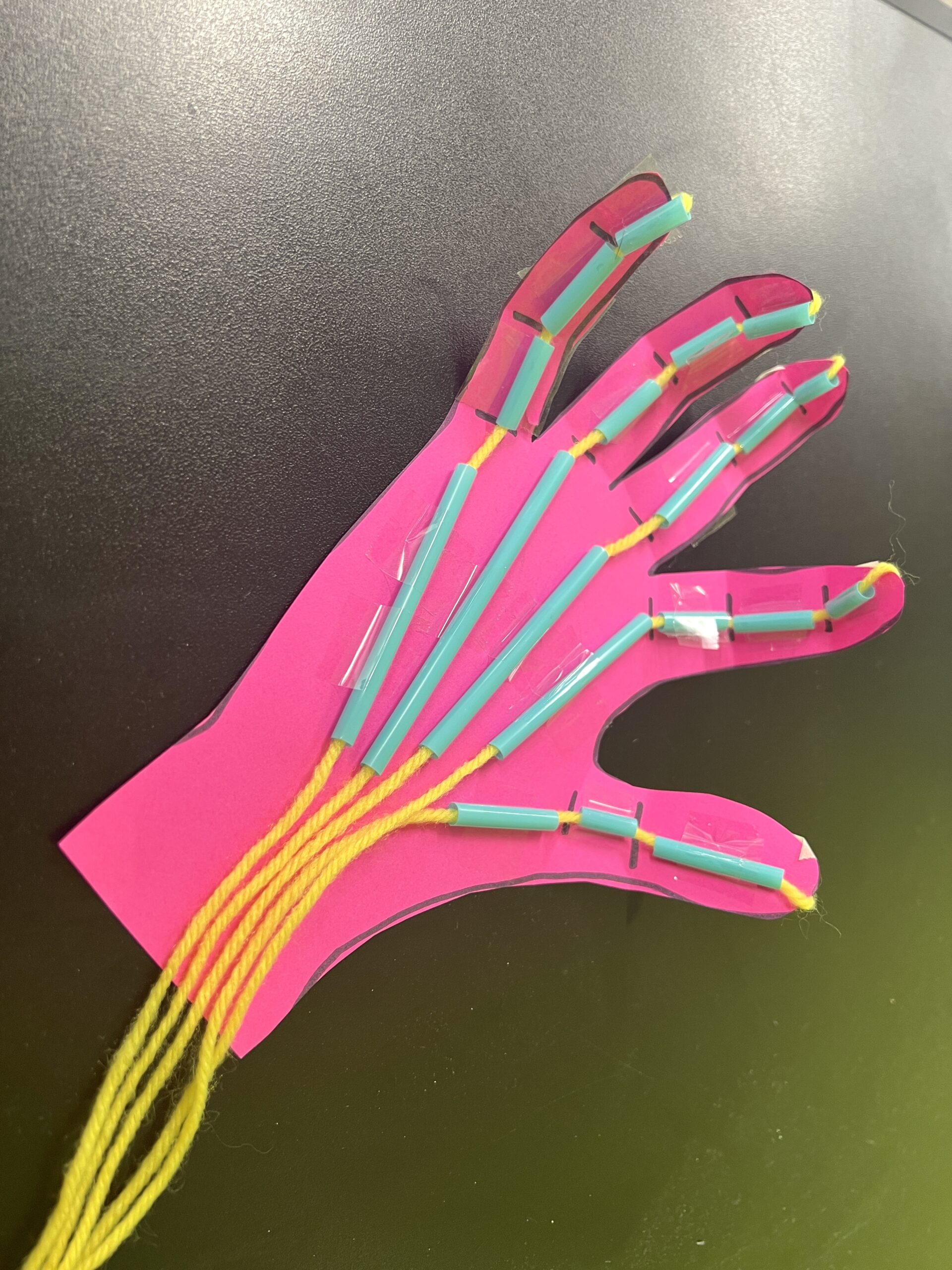
8. Engineer a helping prosthetic
Prosthetics are special devices that help people who are missing a body part, like an arm or a leg. They act like a replacement for the missing part, helping the person to move and do everyday activities. Engineer a paper hand to simulate how a hand moves and how a prosthetic might be designed and built for those who are in need of this tool.
9. Understand the importance of water
Learn how water moves and is recycled throughout the Earth with the water cycle. Teach students what the water cycle is using these Google Slides and worksheets we put together. Then, have students draw the cycle with permanent marker on a ziplock bag. Add water with a few drops of food color, hang in a window with sunlight, and make observations for a few days and notice how the water moves and changes.
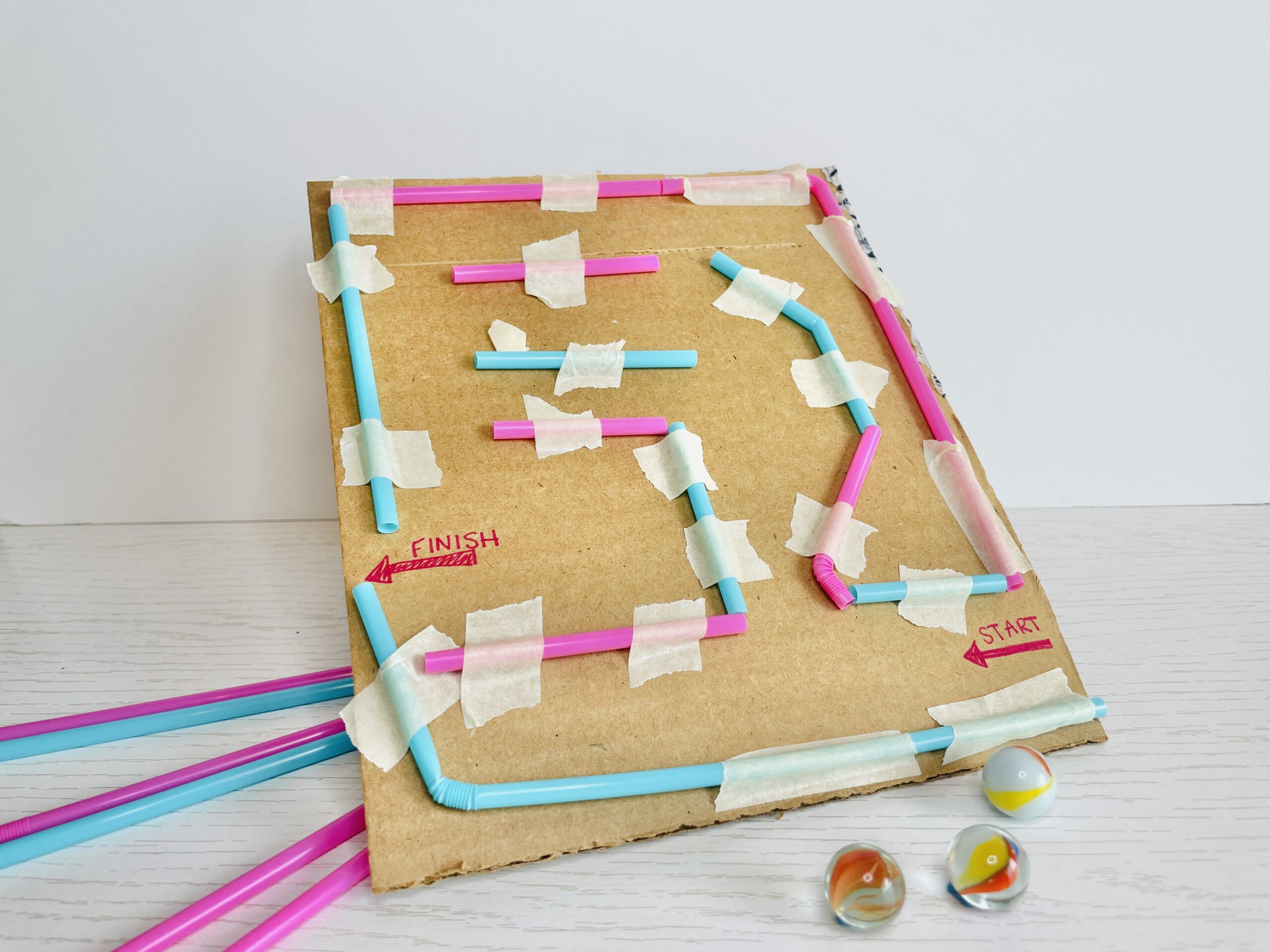
10. Devise an amazing marble maze
Marble mazes are one of students’ favorite STEM activities! You can provide supplies like straws and paper plates for their project. Or let them use their imaginations and create marble mazes from any materials they can think of.
11. Build a bottle rocket
Build a bottle rocket, and learn how molecules act under pressure when applied to launching a rocket. Connect this with Newton’s 3rd law of motion and how every action has an equal and opposite reaction. Connect with watching rockets being launched by NASA and how the same concept is applied as they are being sent up into space.
12. Understand how volcanoes erupt
Using volcanoes, learn more about Earth’s processes and how they change. Teach about the different types of volcanoes and where some are still active here on Earth (e.g., Hawaii, Italy, Indonesia). Simulate how volcanoes erupt by building a volcano and making it explode with the help of baking soda and vinegar. Watch this video and grab the worksheets we put together for you.
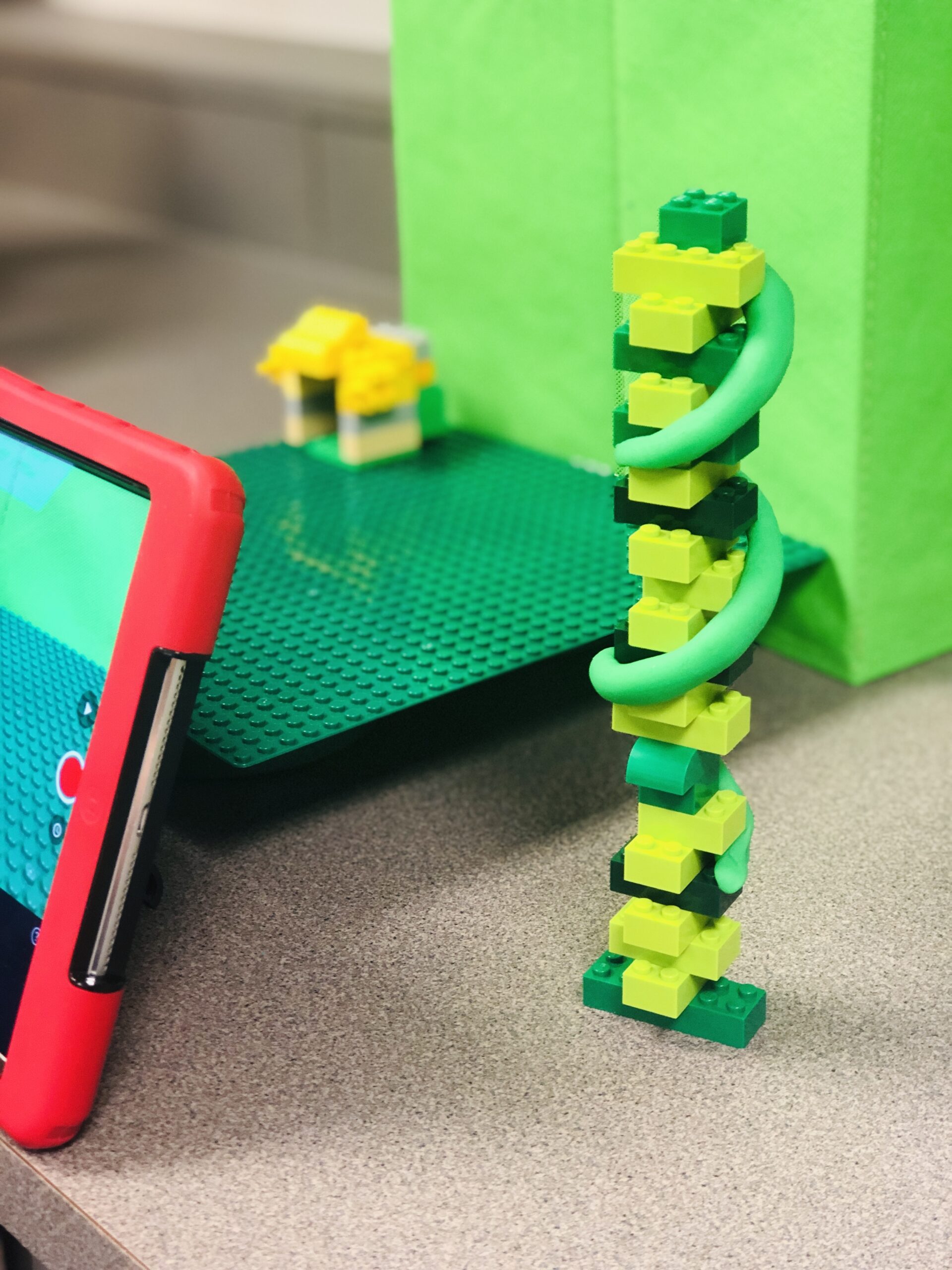
13. Retell a fairy tale using stop-motion
Using LEGO bricks, play dough, and any items you have on hand, have students retell a fairy tale using stop-motion animation. Add an extra challenge where students aren’t allowed to use sound or words. Their entire video needs to visually and clearly retell the story.
14. Build a solar oven
Learn about the value of solar energy by building an oven that cooks food without electricity. Enjoy your tasty treats while discussing ways we can harness the energy of the sun and why alternative energy sources are important. Check out this video we put together to help you build a solar oven.
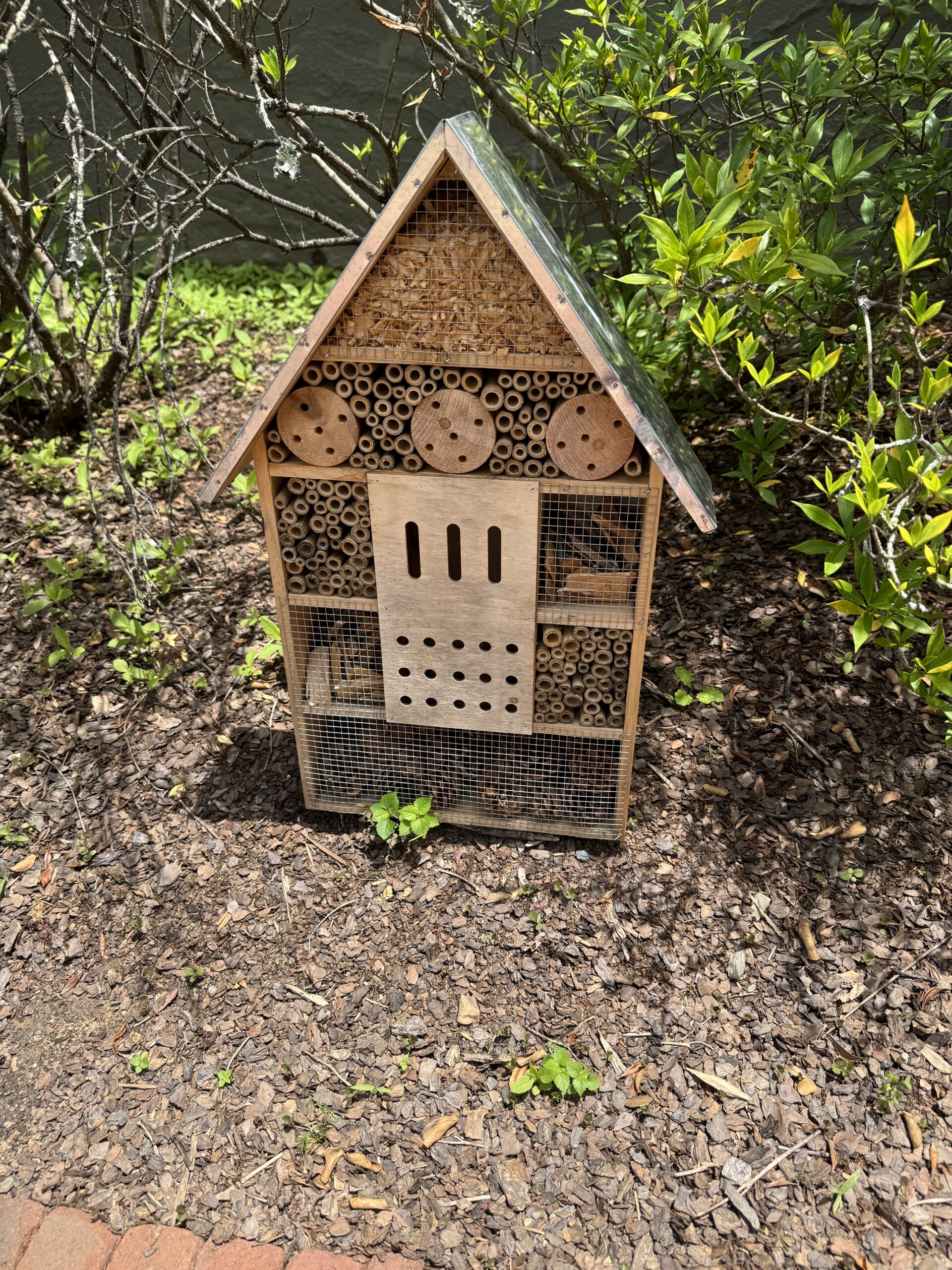
15. Build an insect hotel
Understand the importance of pollinators and helpful bugs by building an insect hotel and placing it near a school or local garden. Recycled materials work well for this project.

16. Construct a catapult
Apply concepts of potential and kinetic energy by building a catapult using Popsicle sticks, rubber bands, and plastic spoons. Practice aim by changing the fulcrum and launching pom-poms into a basketball hoop that students engineer.
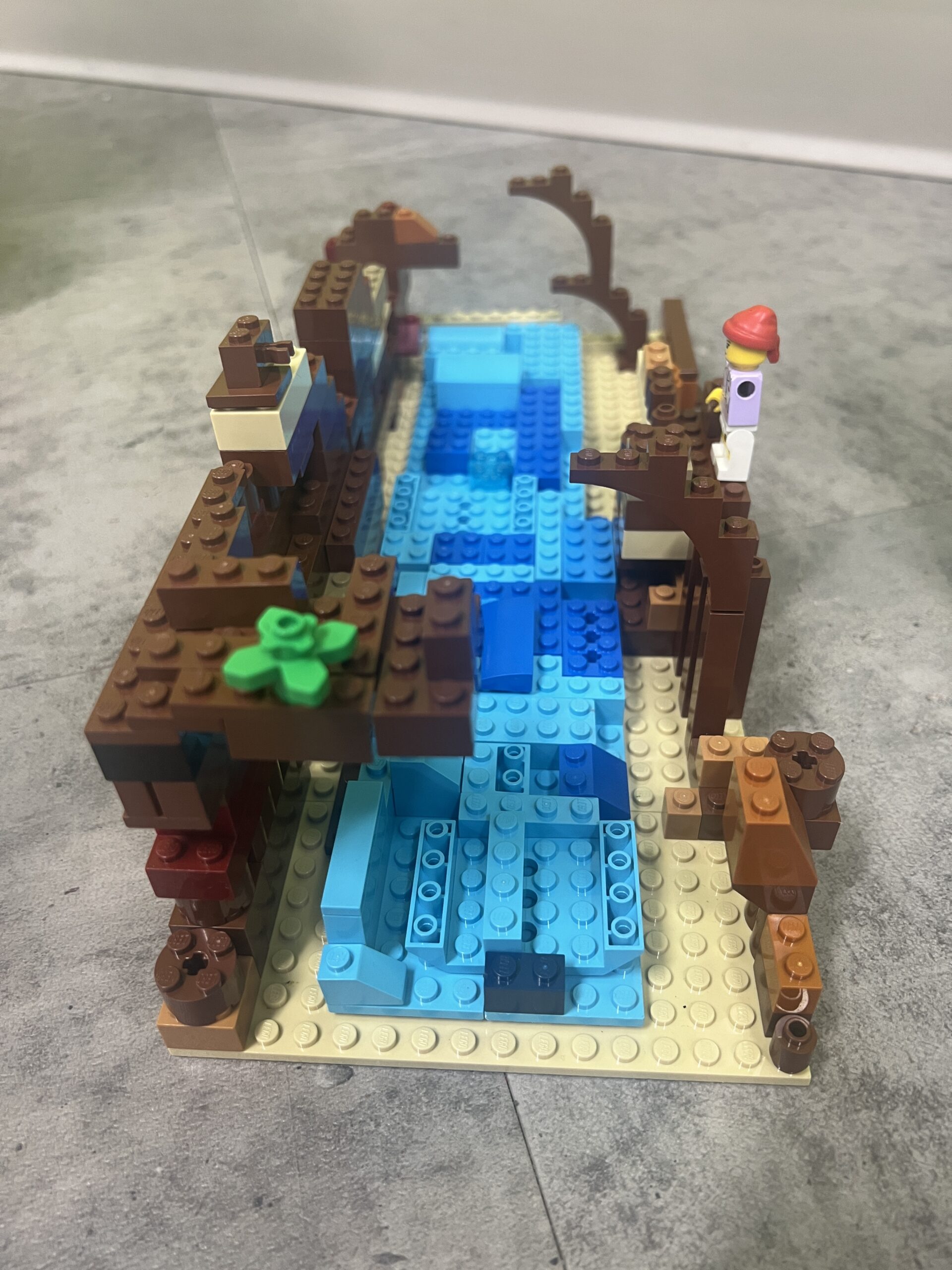
17. Design a landform
Have students build a model of land and bodies of water found on Earth with LEGO bricks. Many interesting landforms can be found using Google Earth, which adds another element of wonder.
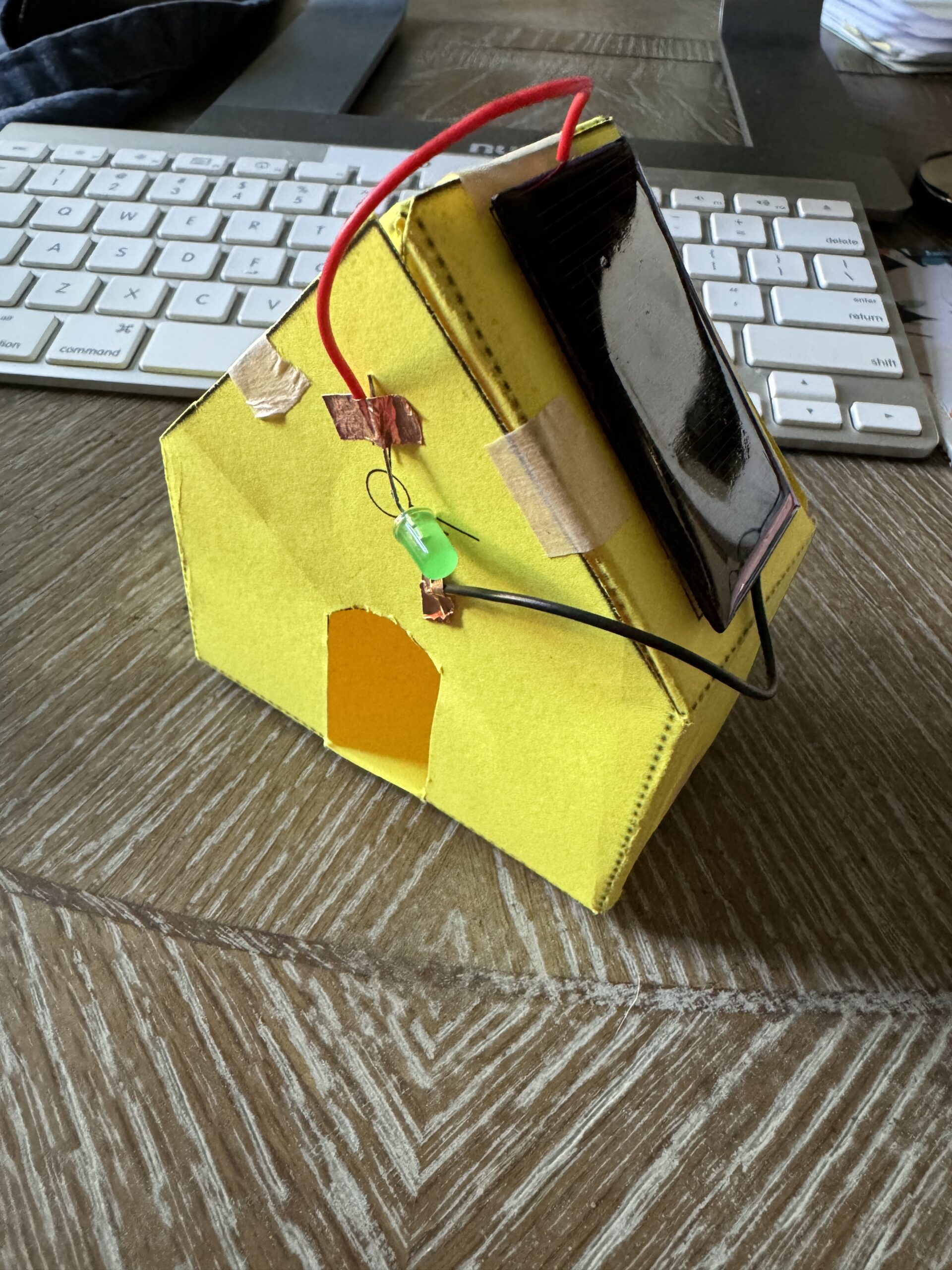
18. Build a solar-powered house
Discuss the difference between renewable and nonrenewable energy resources and how solar power is a type of renewable resource. Build a home and add a small LED light that can illuminate with a small solar panel.
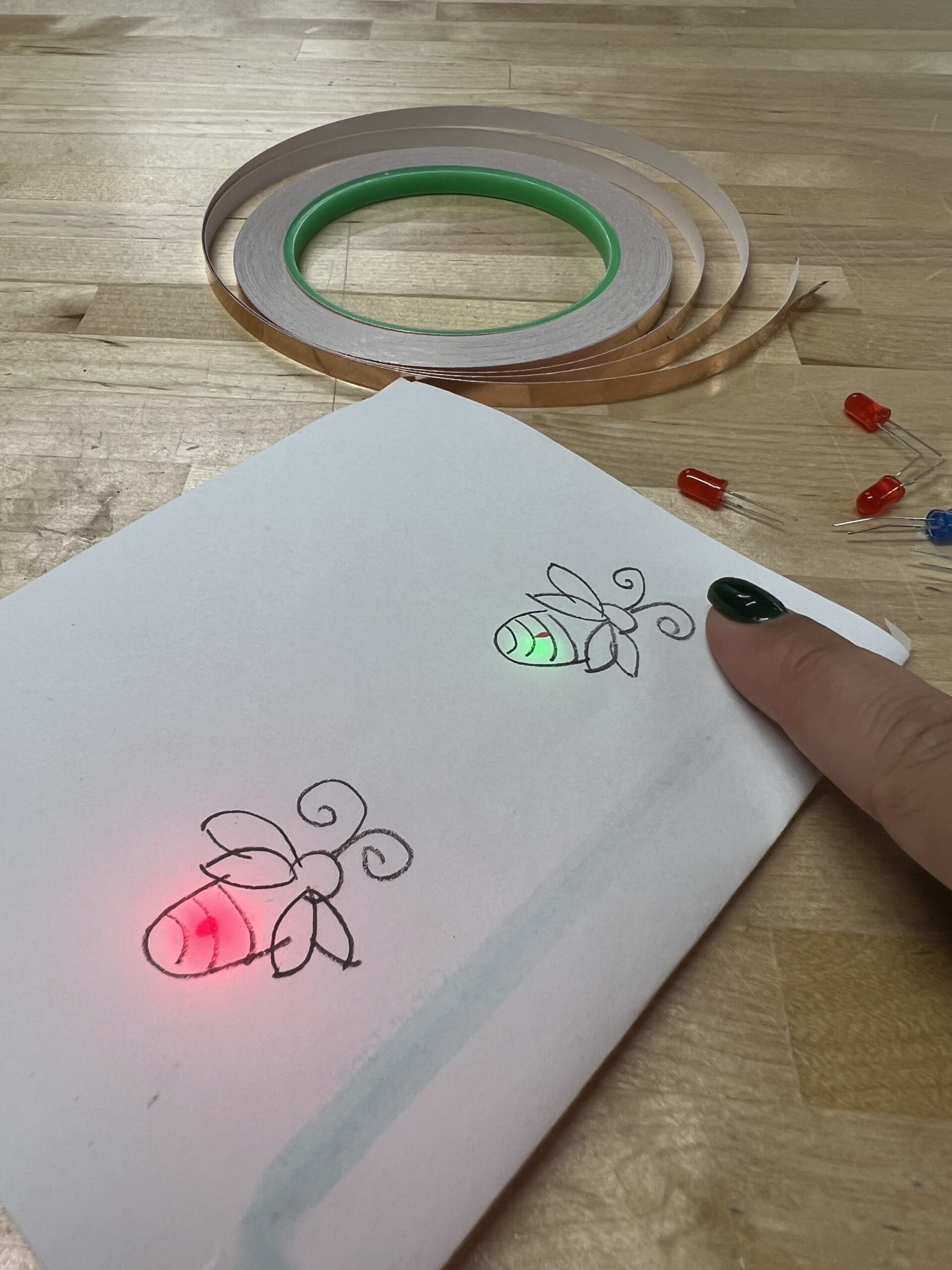
19. Create a night-light
Learn how circuits work by lighting up a small LED light by engineering a paper circuit with copper foil tape and a coin cell battery. Have students design a night-light that can be placed on top by building with recycled materials.
20. Learn about nature’s natural protection
Learn why eggs are a natural example of protecting the living thing that is born inside. Have students make predictions as to what will happen if an egg is placed in vinegar and is left there for a certain amount of time. Check out this video and experiment we put together. Discuss why animal parents choose specific locations to lay their eggs to help them withstand harmful elements.
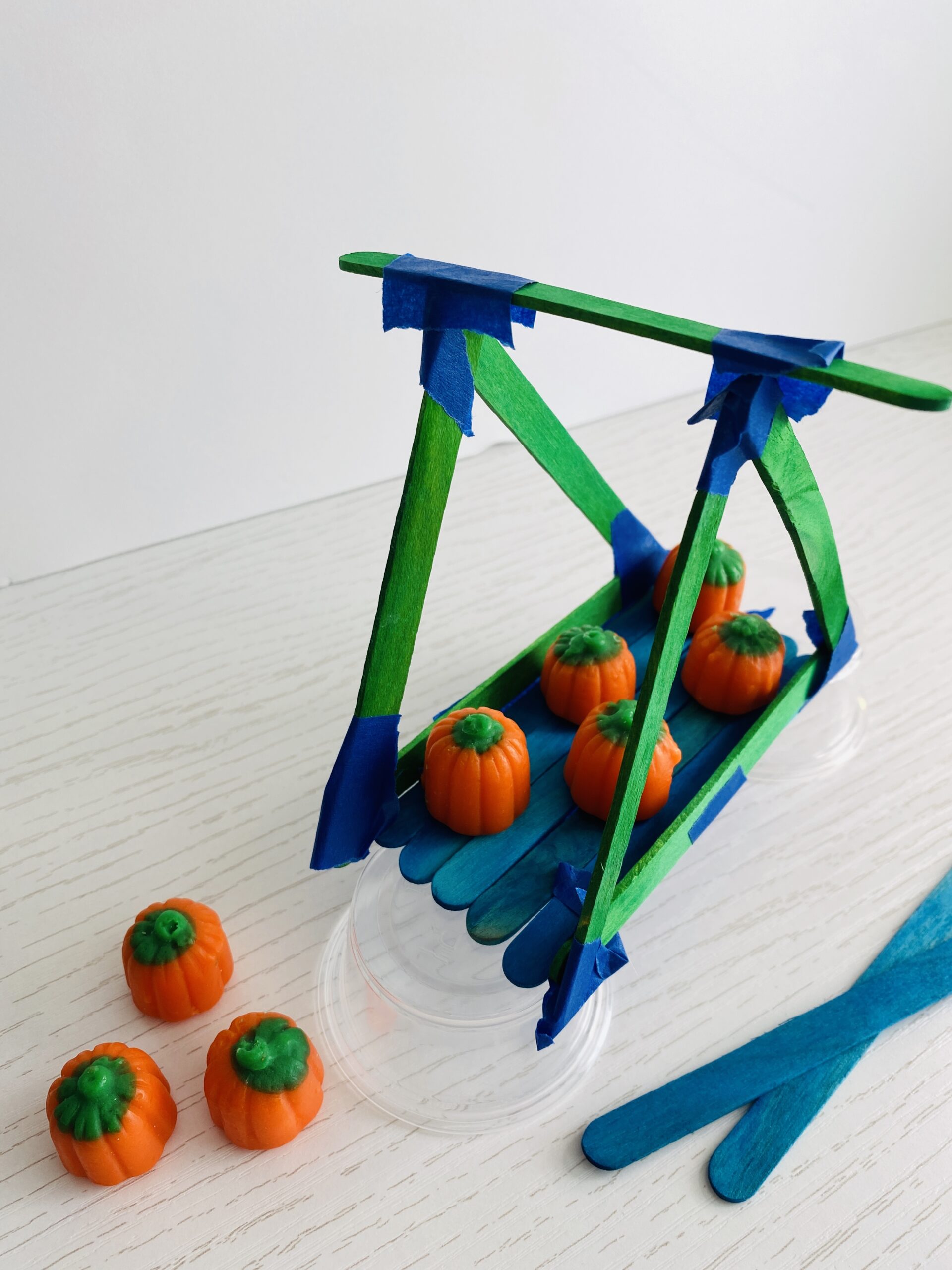
21. Engineer a bridge
Here’s another one of those classic STEM activities that really challenge kids to use their skills and knowledge. Build a bridge with Popsicle sticks and other materials, then compete to see which can bear the most weight.
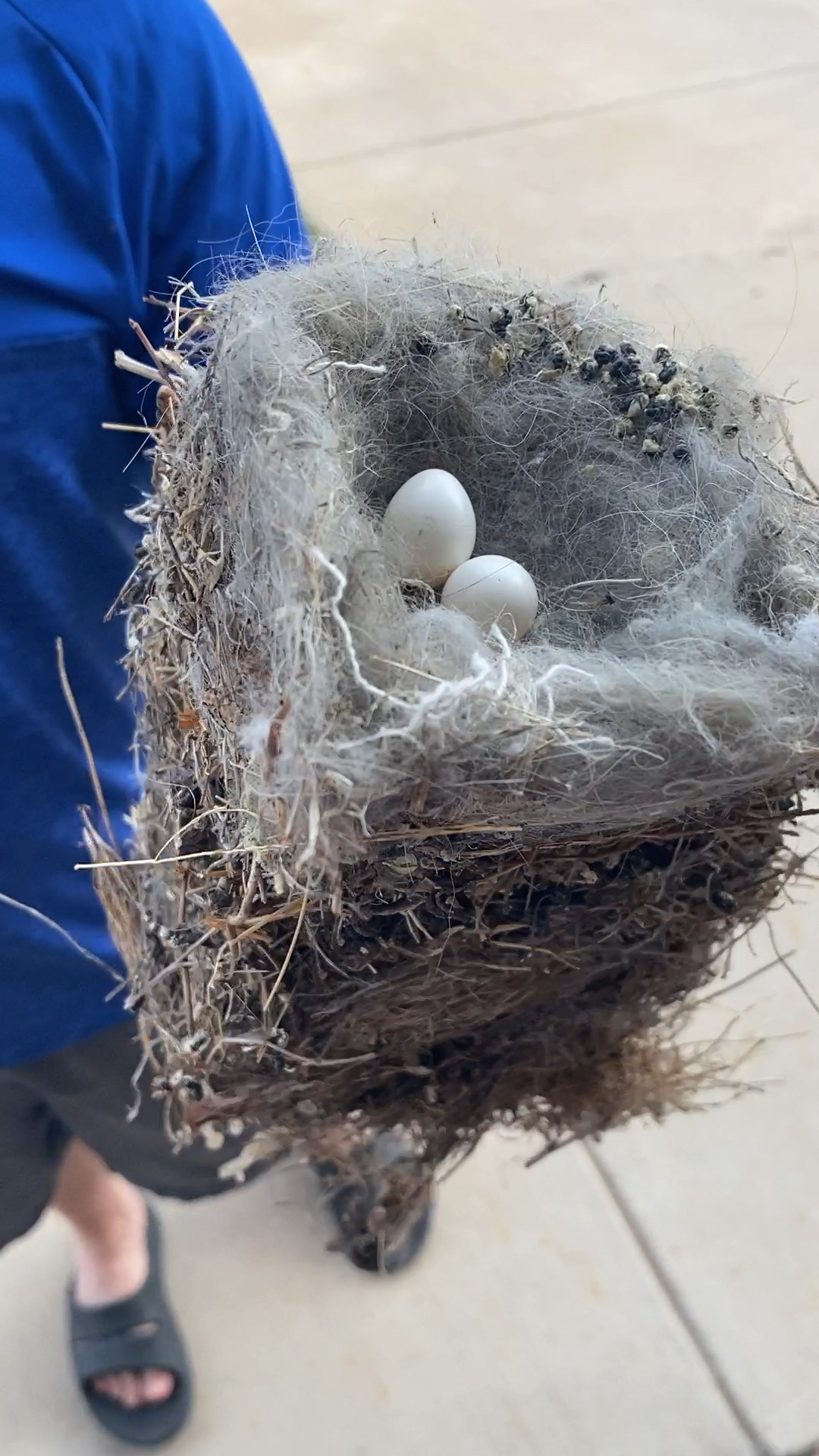
22. Forage and build a bird’s nest
Birds build incredibly intricate nests from materials they find in the wild. Take a nature walk to gather materials, then see if you can build a sturdy, comfy nest of your own.
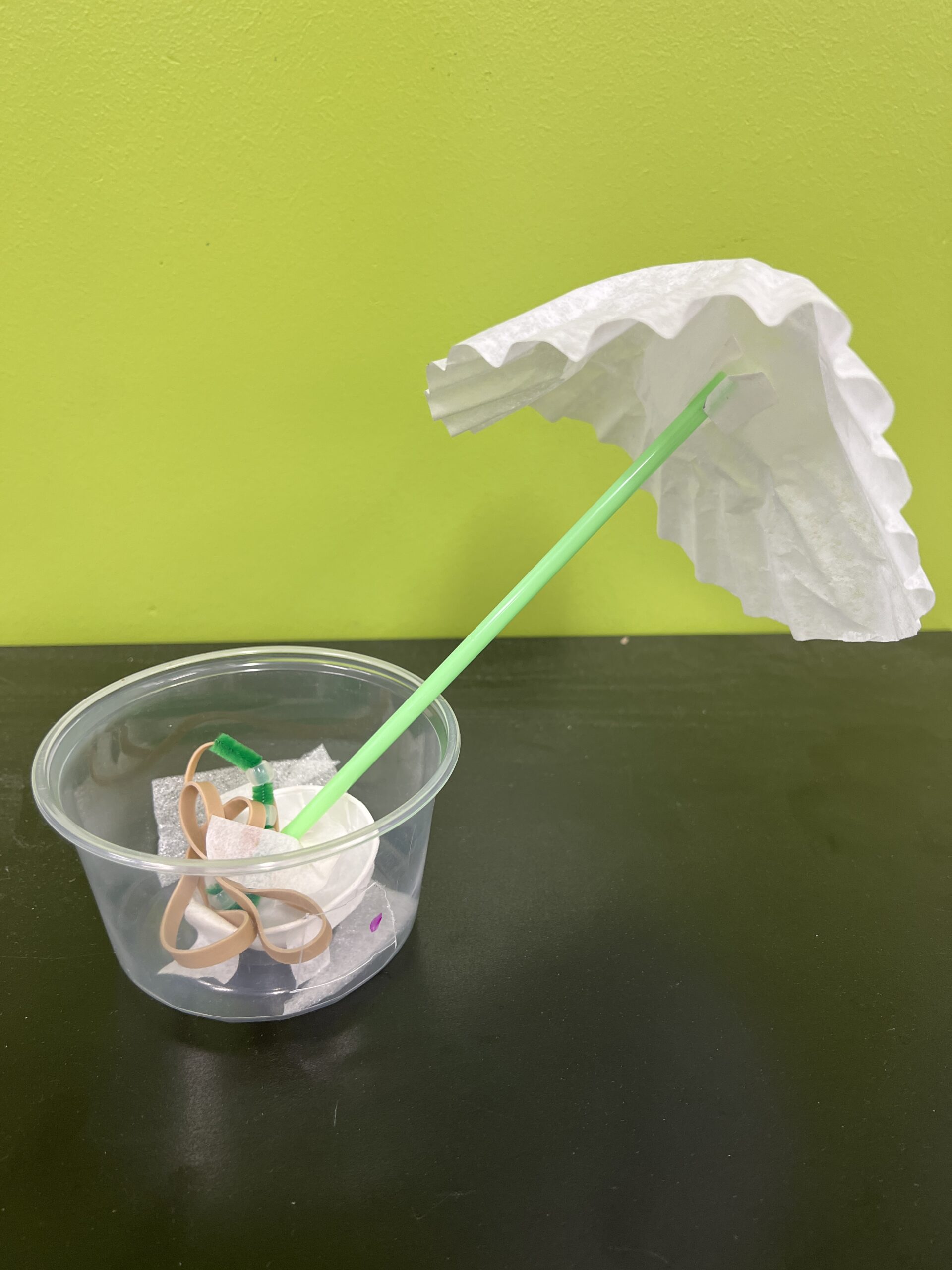
23. Build parachutes to test air resistance
Learn more about the physics behind air resistance. Have students build a parachute out of different types of materials and test which makes the most effective parachute.
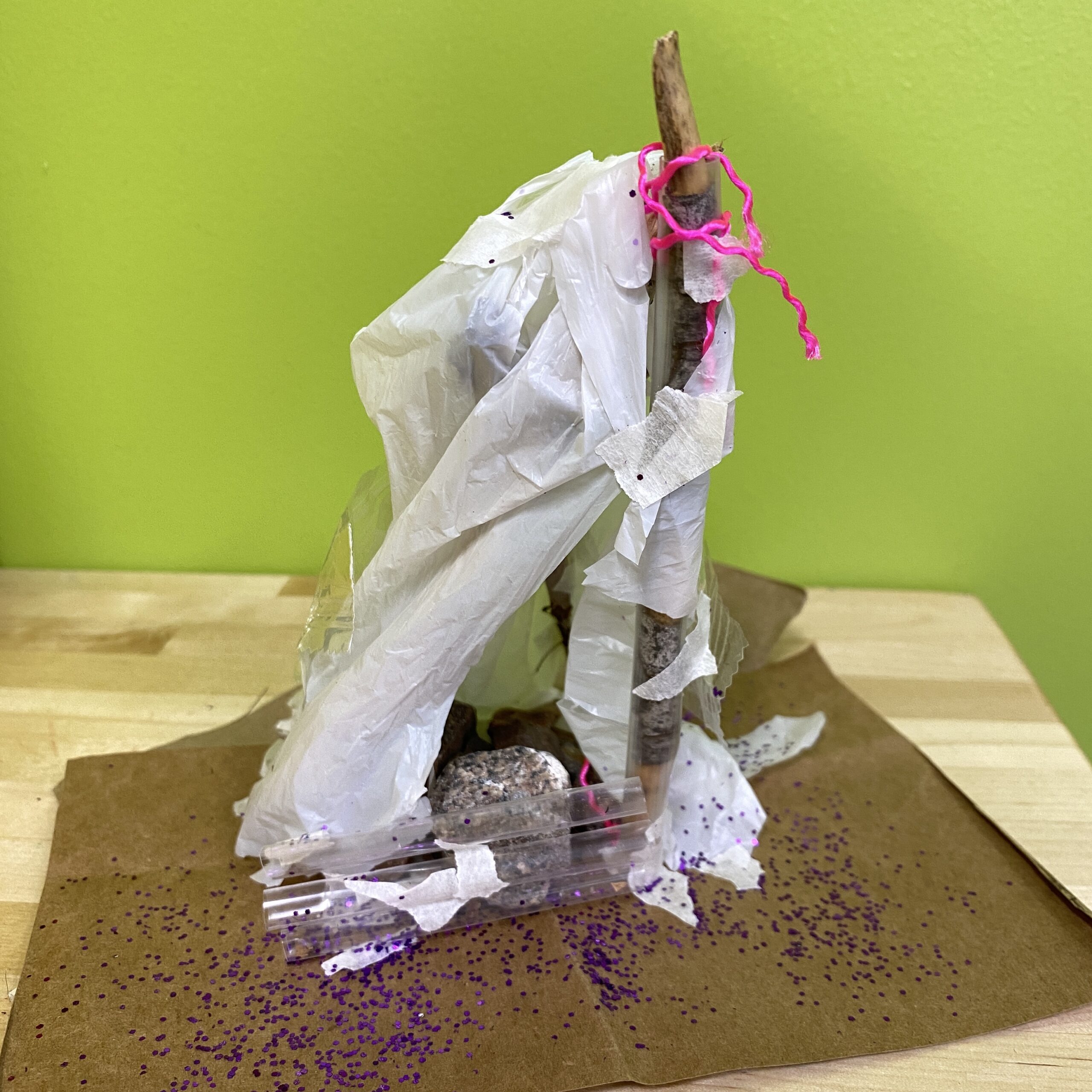
24. Engineer a shelter to face the weather
Have students engineer a small shelter that can withstand various weather such as rain, snow, and wind. Use a soaked sponge to represent rain, glitter to represent snow, and a fan to represent the wind.
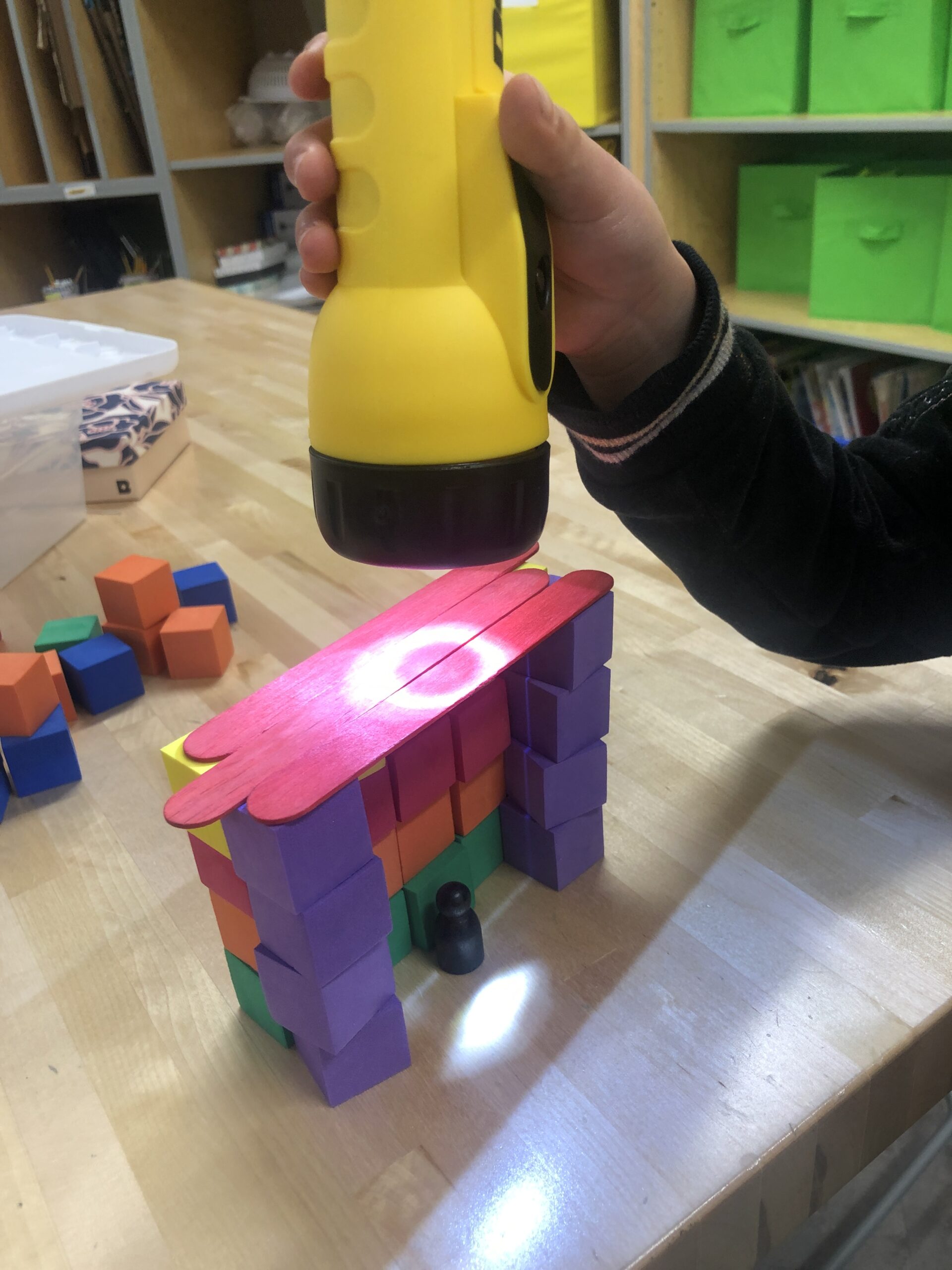
25. Build a shade structure
Teach students how shade is created by blocking the direct rays of the sun and how shade can be helpful to people and animals. Provide students with pony beads that change color in the sun, then create a shade structure that will prevent the beads from changing color. If going outside isn’t possible, a flashlight can work well for this challenge.
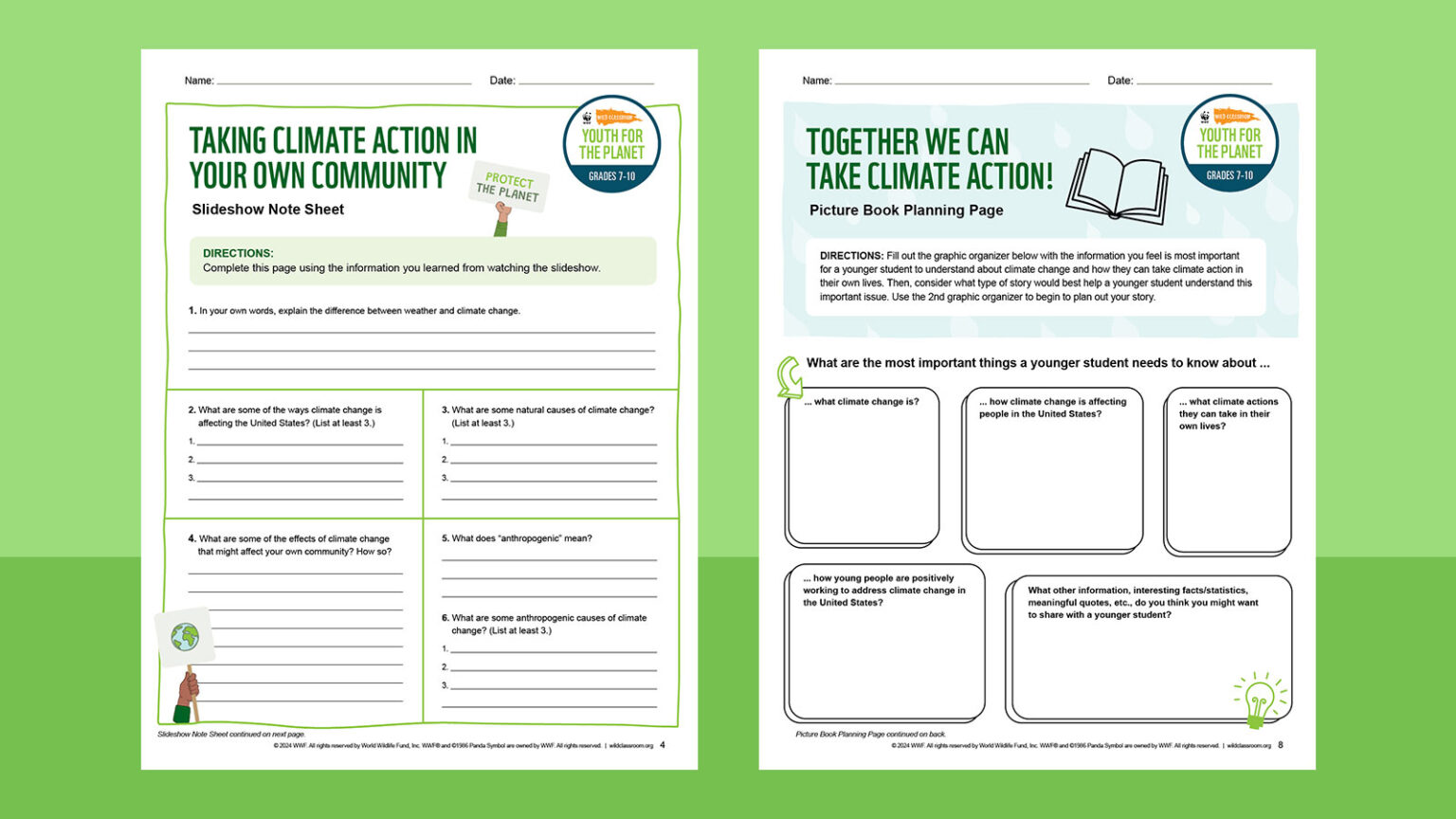
26. Take action against climate change
Use this student project plan to inspire your students to lead a comprehensive climate action campaign in their community. Use these provided teaching slides and project ideas to build background while also showing how to make a change in their community.
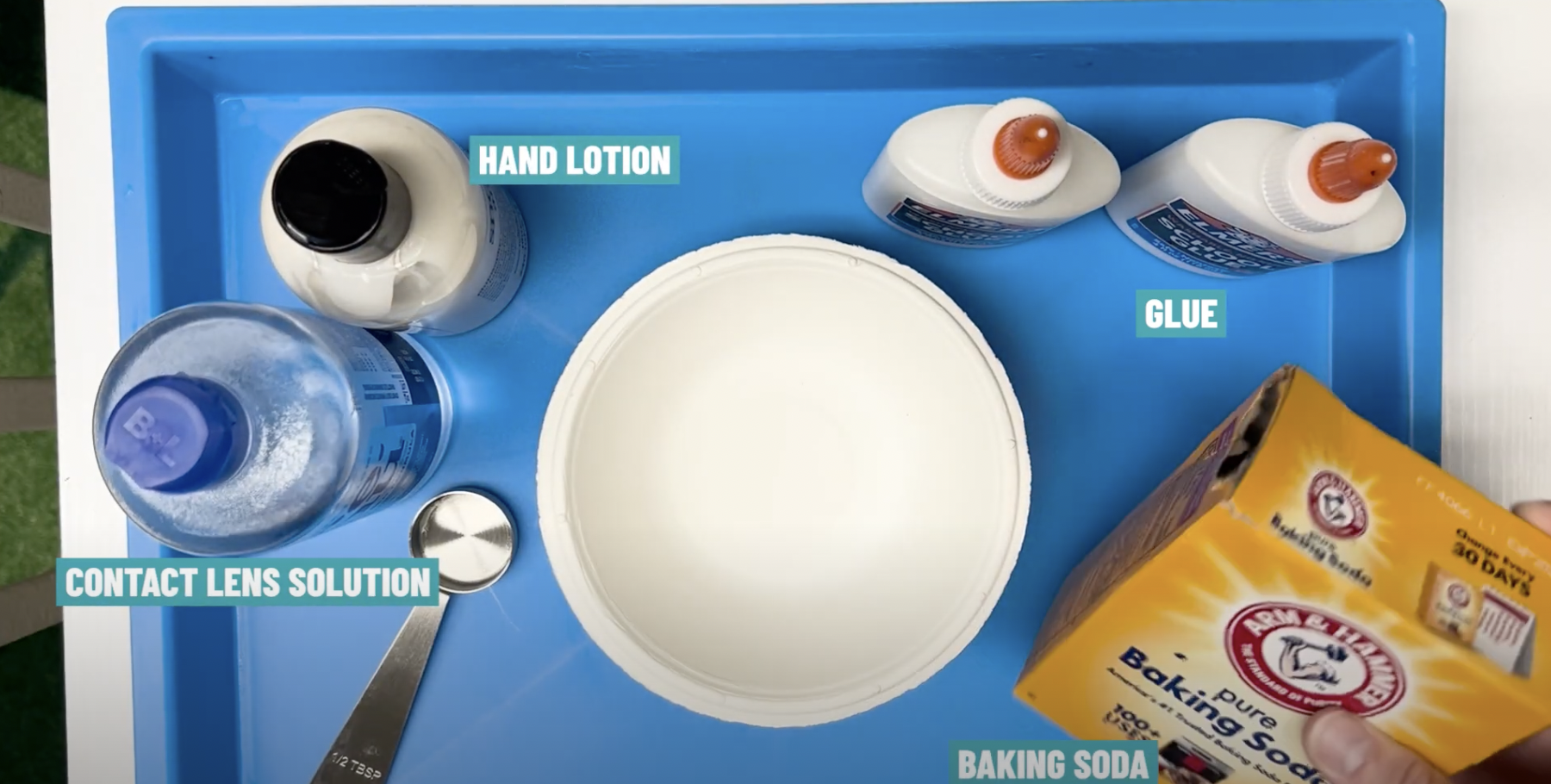
27. Brew up your own slime
Chances are good your students already love making and playing with slime. Turn the fun into an experiment by changing the ingredients to create slime with a variety of properties—from magnetic to glow-in-the-dark!
We have a variety of slime videos to check out:
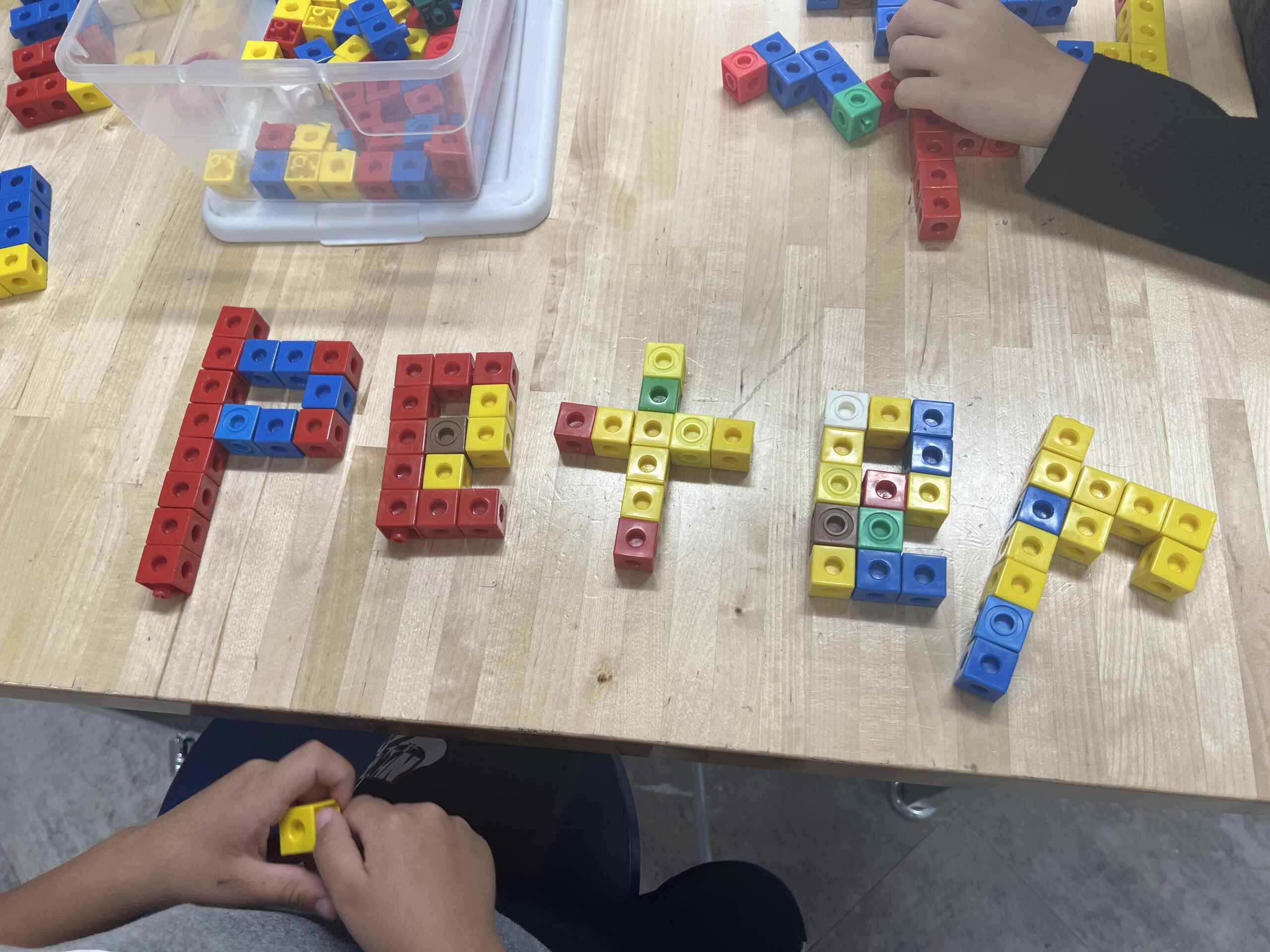
28. Engineer your name
Using Unifix Cubes or other math manipulatives, have students build their name. For an extra challenge, have students build their middle and last names.
Buy it: Unifix Cubes at Amazon
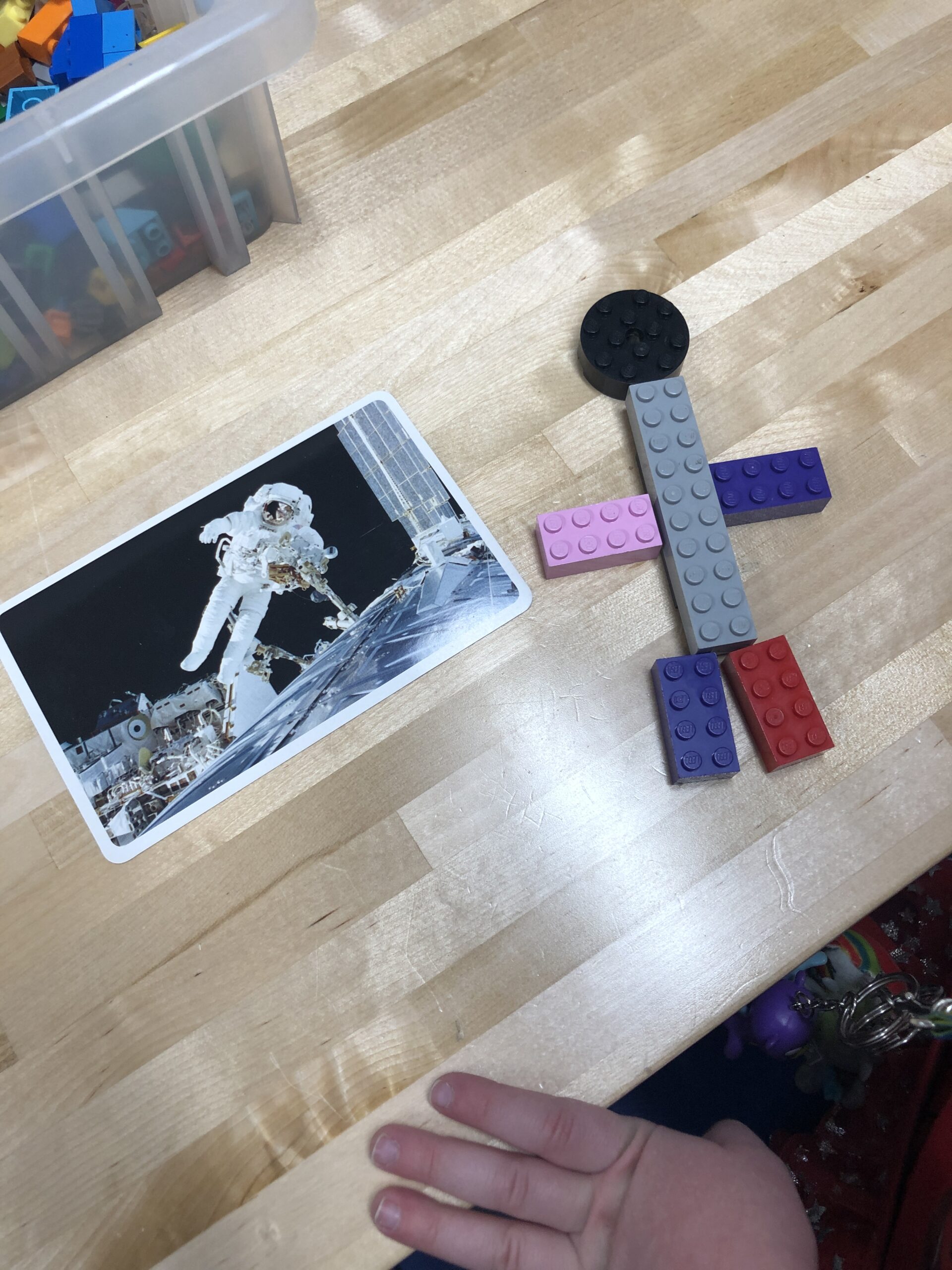
29. Build using flash cards
Have flash cards with fun images sitting in your closet? These can serve as inspiration for a building station in your classroom. Students can build using LEGO bricks or any other manipulatives you have on hand.

30. Launch a straw rocket
Create a tube out of paper that is slightly larger than a straw and seal one end shut. Cut rocket shapes out of paper and tape them to the paper tube. Blow into the bottom of the straw to launch the rocket. Observe and discuss the physics of rockets while also measuring the distance each of the rockets traveled.
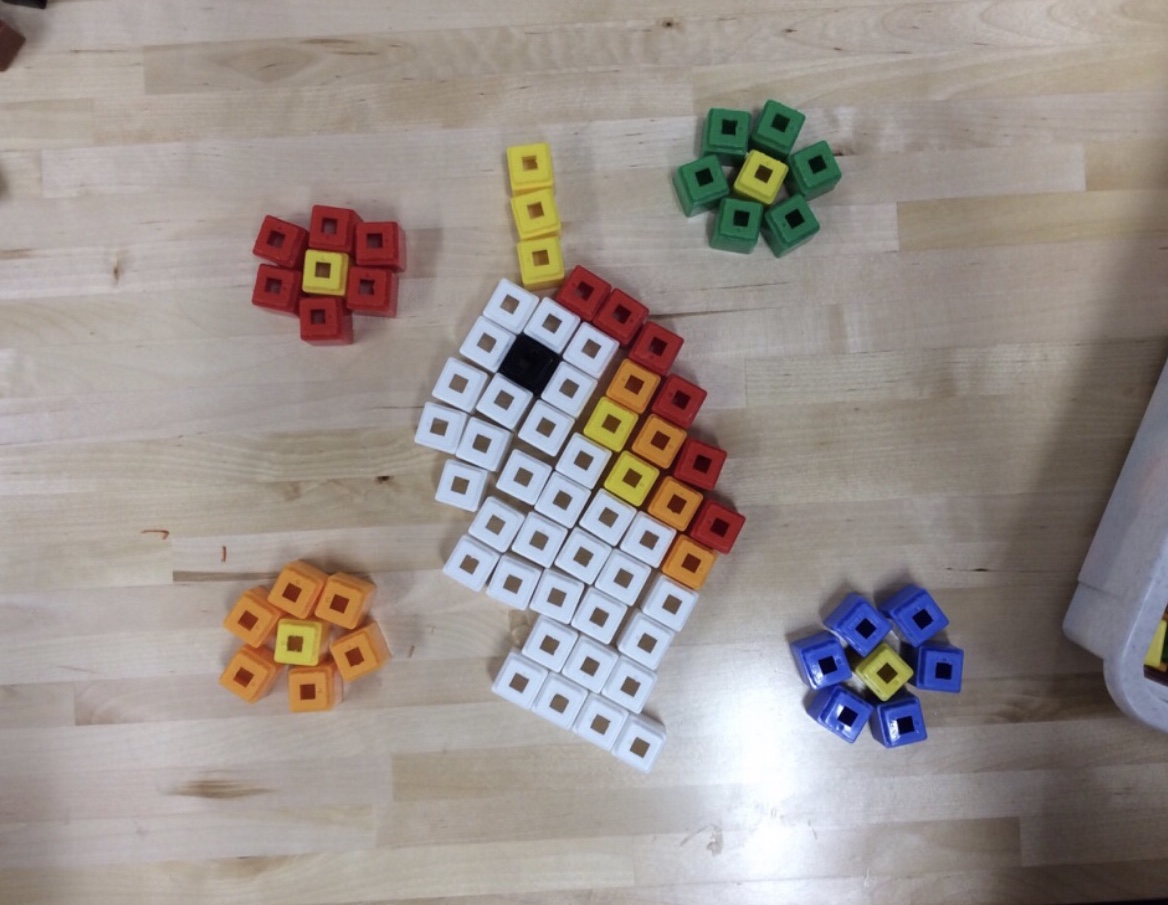
31. Create pixel art
Pixels are the tiny dots that are put together to make the images we see on any screen. Have students visualize what simple pictures may look like in pixels by building with Unifix Cubes.
Buy it: Unifix Cubes at Amazon
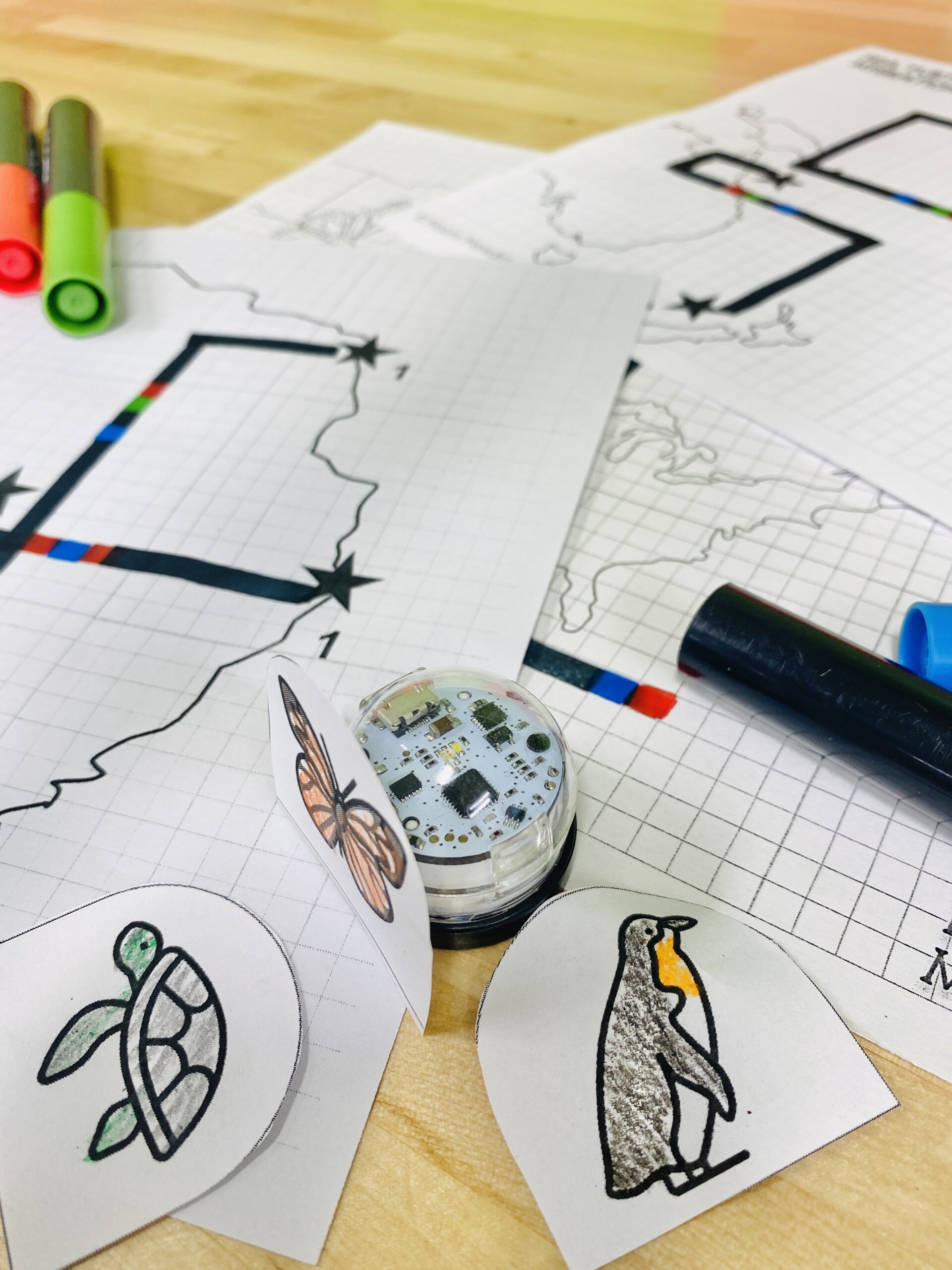
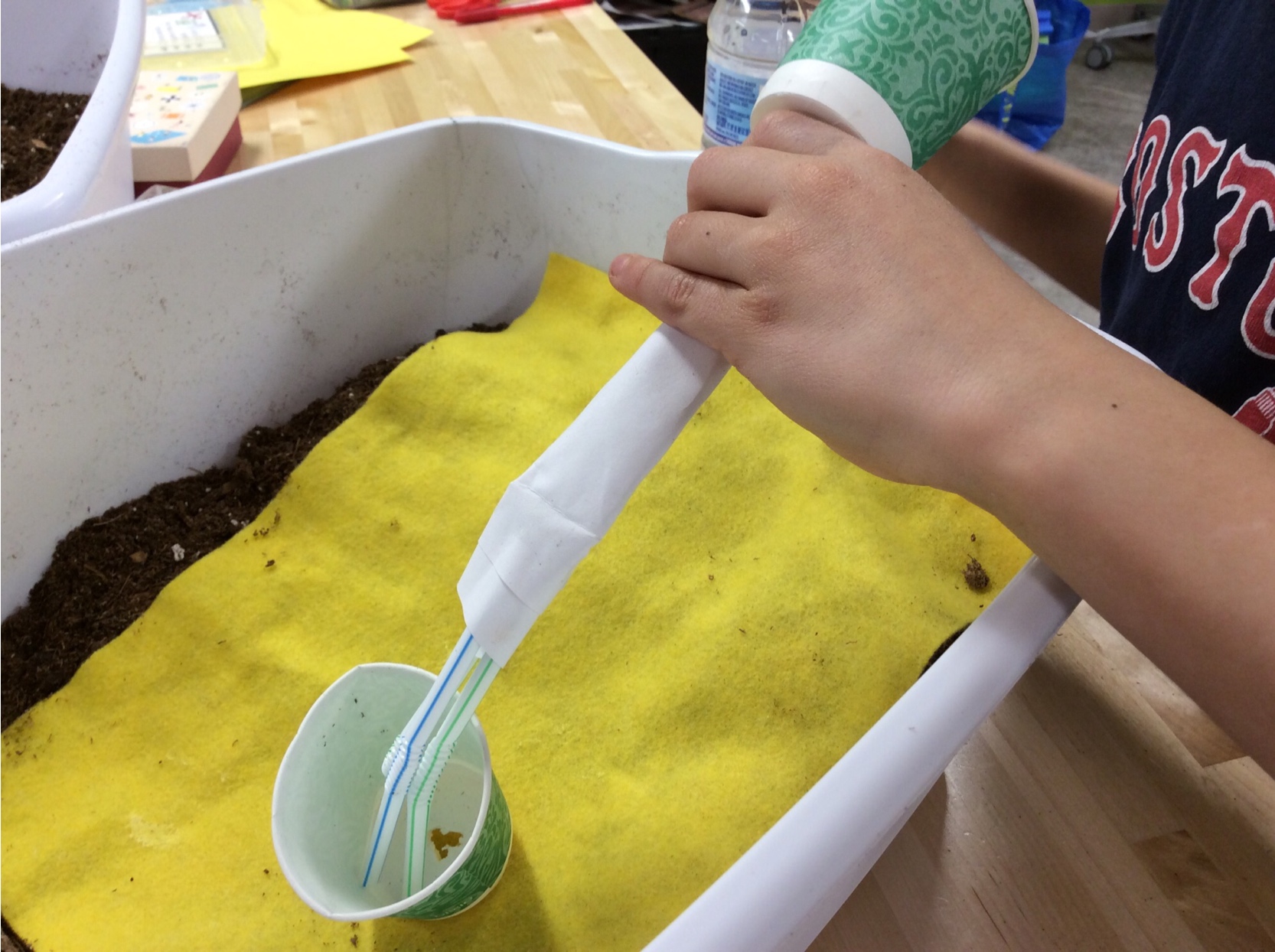
33. See water pollution in action
Learn about the challenges of cleaning up polluted water sources like rivers and lakes with this interesting outdoor science activity. Pair it with a visit to a local water treatment plant to expand the lesson.
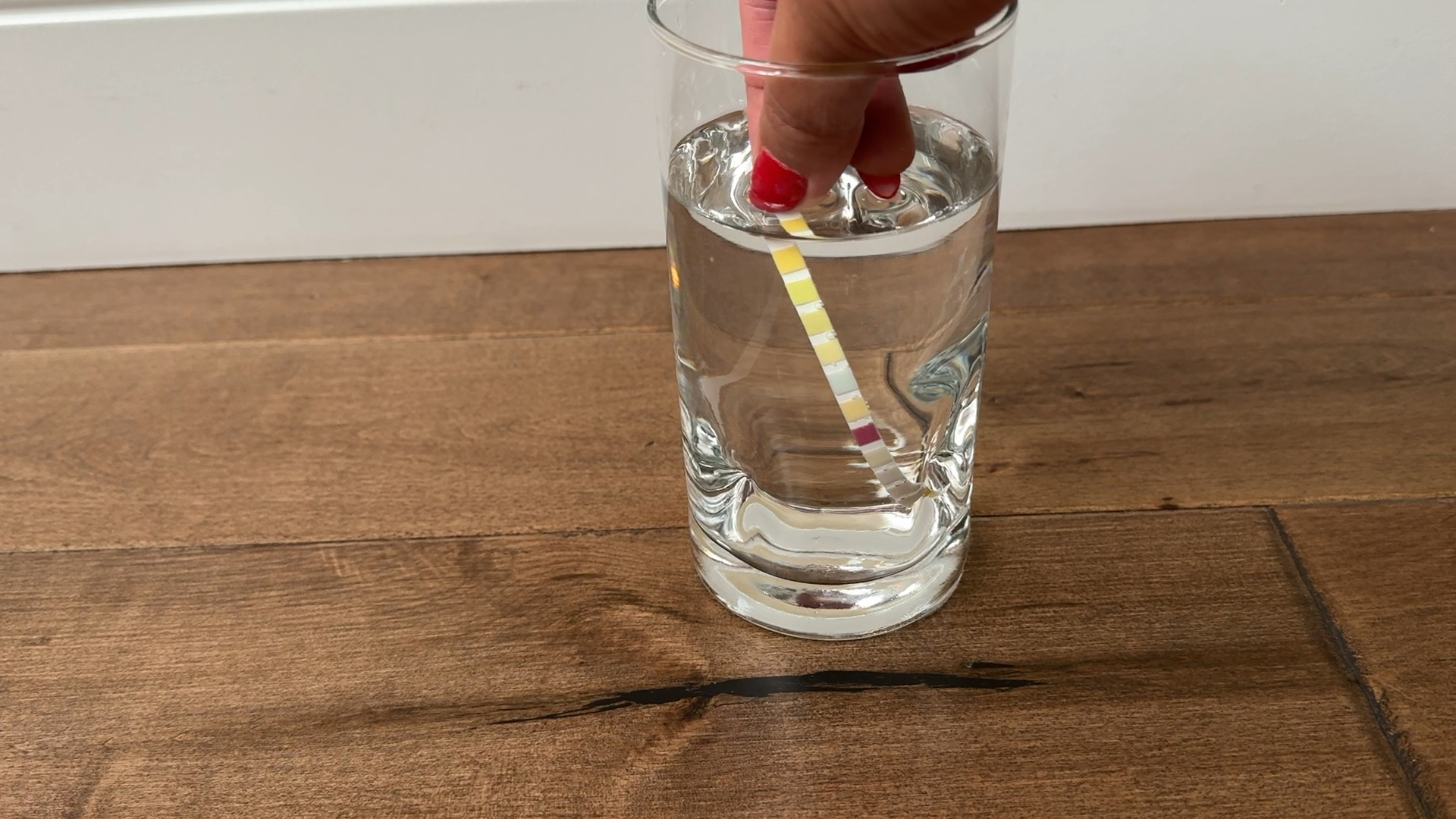
34. Test your local water quality
Once you’ve “cleaned up” your water, try testing it to see how clean it really is! Then head out to test other types of water. Kids will be fascinated to discover what’s in the water in their local streams, ponds, and puddles. Student water-testing kits are readily available online.
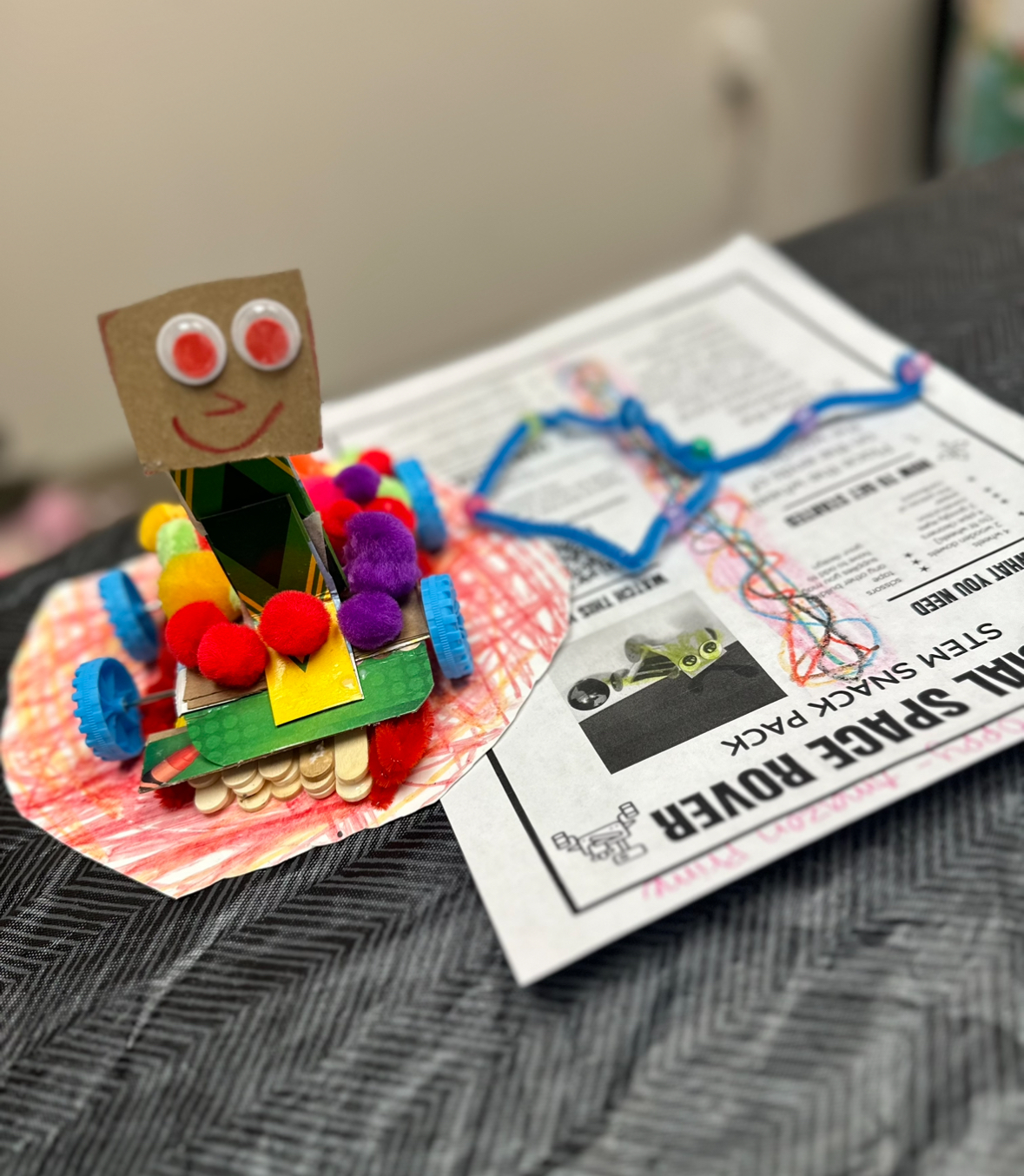
35. Build a space rover
Explore how rovers are sent up into space to explore locations like Mars to learn more about the location and send information back down to Earth. Have students engineer a model of a space rover, and ensure students add elements that allow the rover to perform certain tasks like taking photos and picking samples to examine. Check out this article for more Mars Rover activity ideas.
37. Create giant bubbles
It’s easy to mix your own soap-bubble solution with just a few ingredients. Let kids experiment to find the best proportion of ingredients to create giant bubbles, long-lasting bubbles, and other variations. Check out this video and free worksheet we put together with a recipe and steps to make a giant-bubble wand
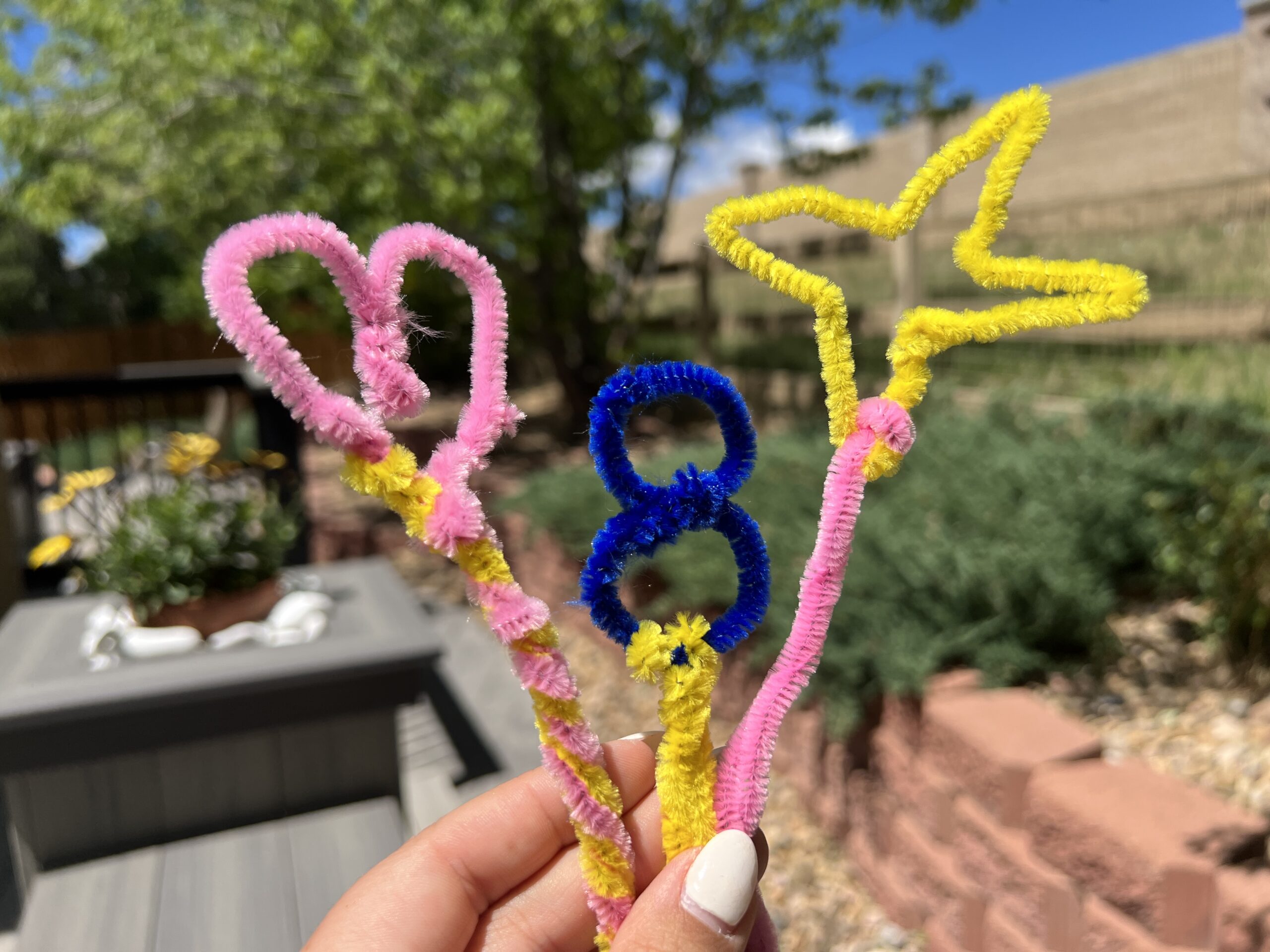
38. Construct a small bubble wand
Using pipe cleaners, students can design small bubble wands and blow bubbles using the same recipe as above. Compare and contrast how bubbles made with the pipe cleaner wands compare to the large bubble wand.
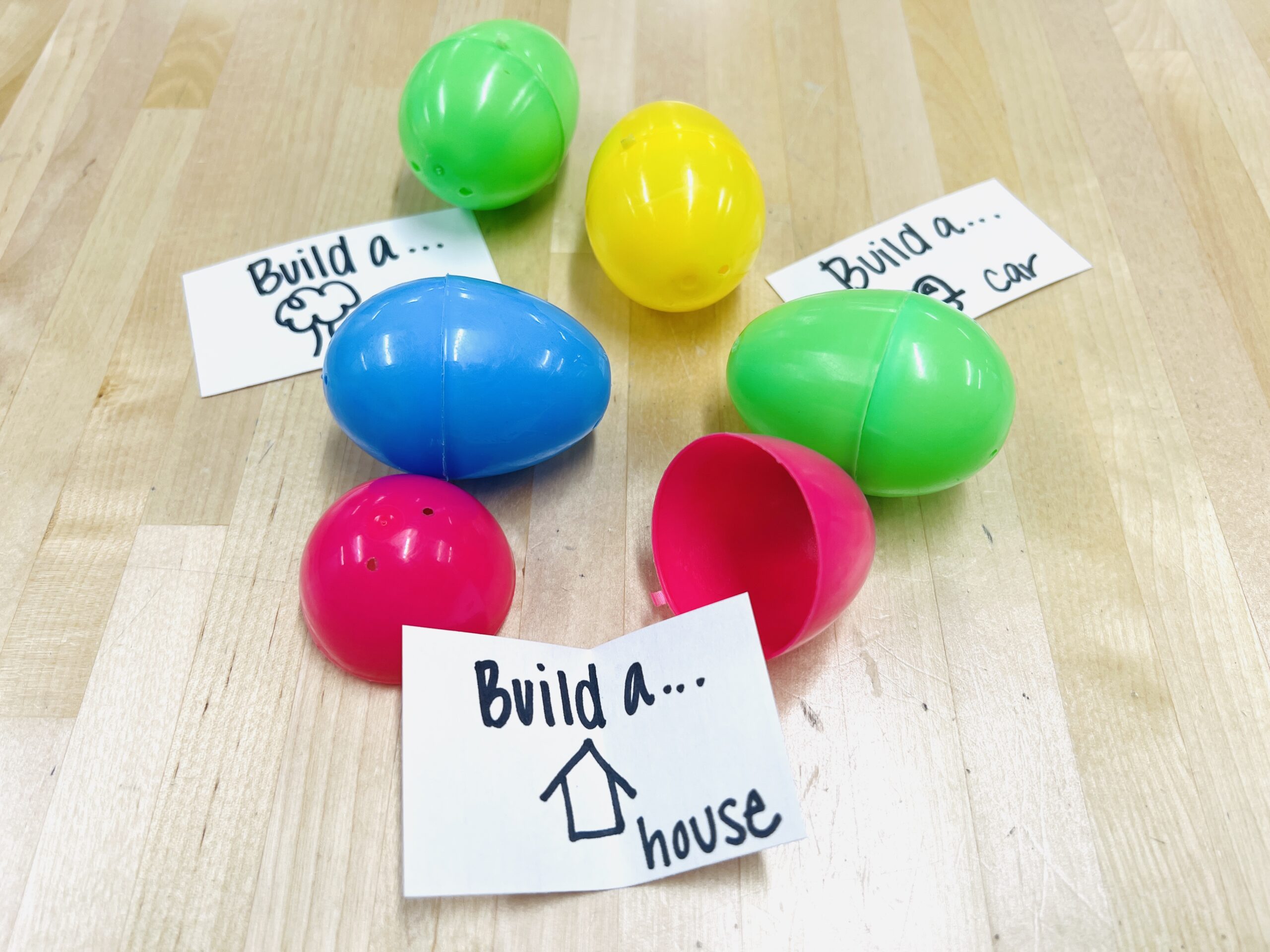
39. Go on a STEM scavenger hunt
Get students up and moving by writing down different items they can build using manipulatives you already have in the classroom. Students will find a plastic egg hidden in the classroom, go and build what’s listed, re-hide their egg, then go and find another egg hidden in the classroom.

40. Protect a house from a flood
Learn about different ways floods can enter an area, then have students create an invention to keep a house safe from the flooding water. Make sure to have towels handy for any spills along the way!

41. Construct a wall maze
Tape recycled materials to the wall with painter’s tape to create a path for a marble to travel down the wall and land in a cup on the floor. Notice how different angles change the direction and speed of the marble.
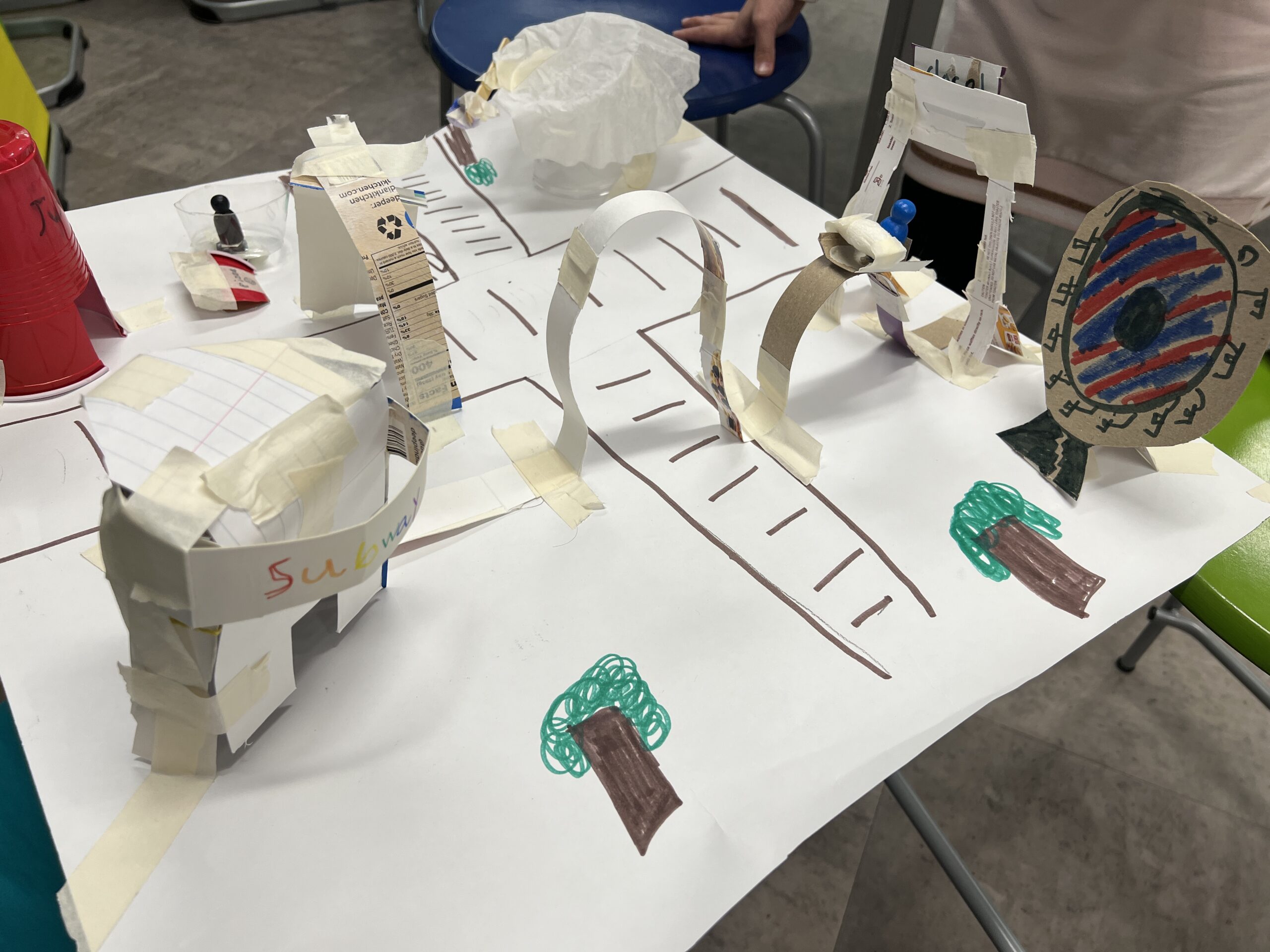
42. Refine mapping skills by designing an amusement park
For this cross-curricular activity, students investigate the parts of a map by creating an amusement park. After they create their map, they do a detailed drawing and write about one of their ride designs. Then they design an all-access park pass. So many STEM activities in one!
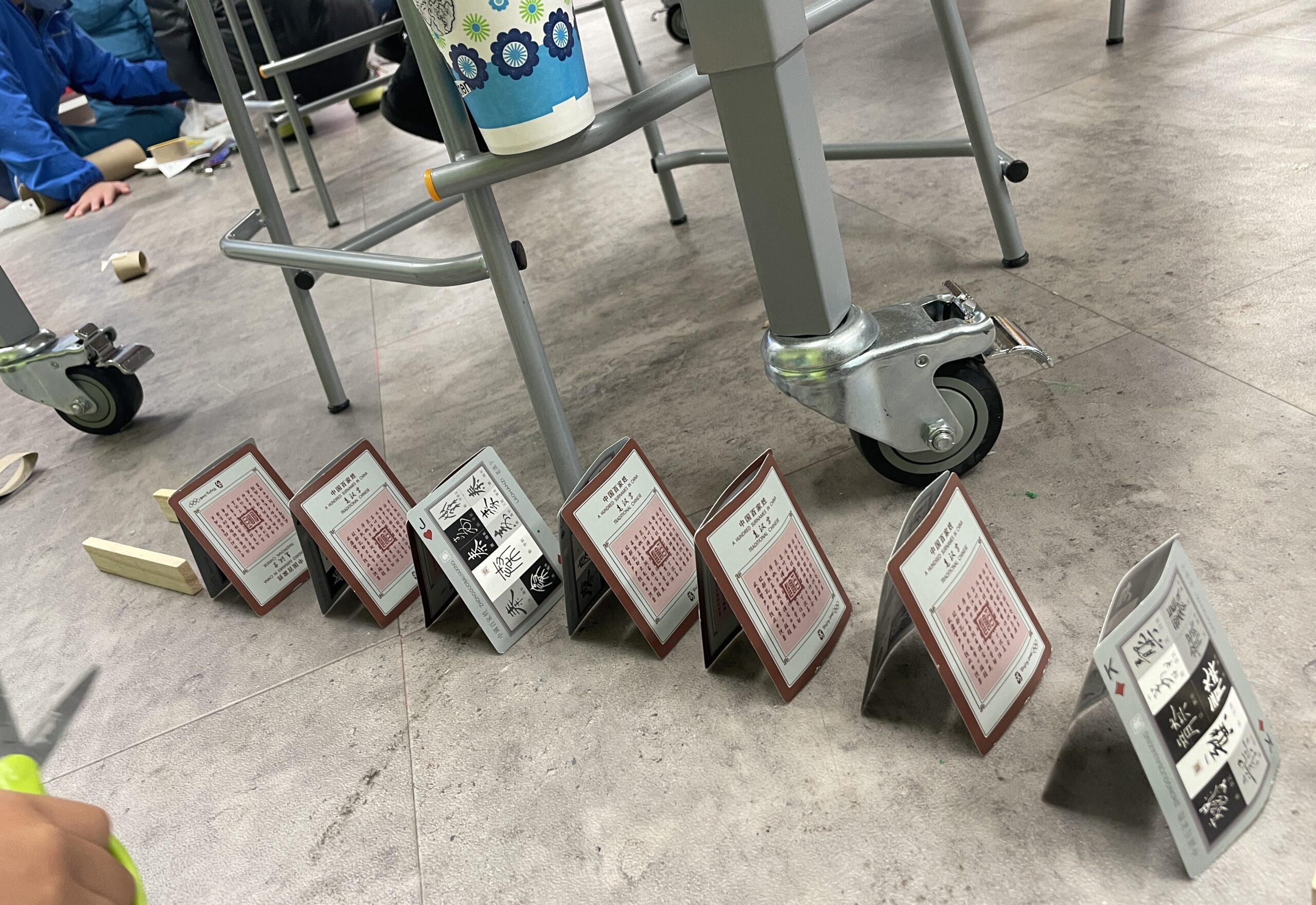
43. Design a Rube Goldberg Machine
Talk about chain reactions and how when one event starts, it will eventually trigger the next, and so on until the final task is completed. Connect to other types of chain reactions that happen in nature, like food chains, climate change, and life cycles.
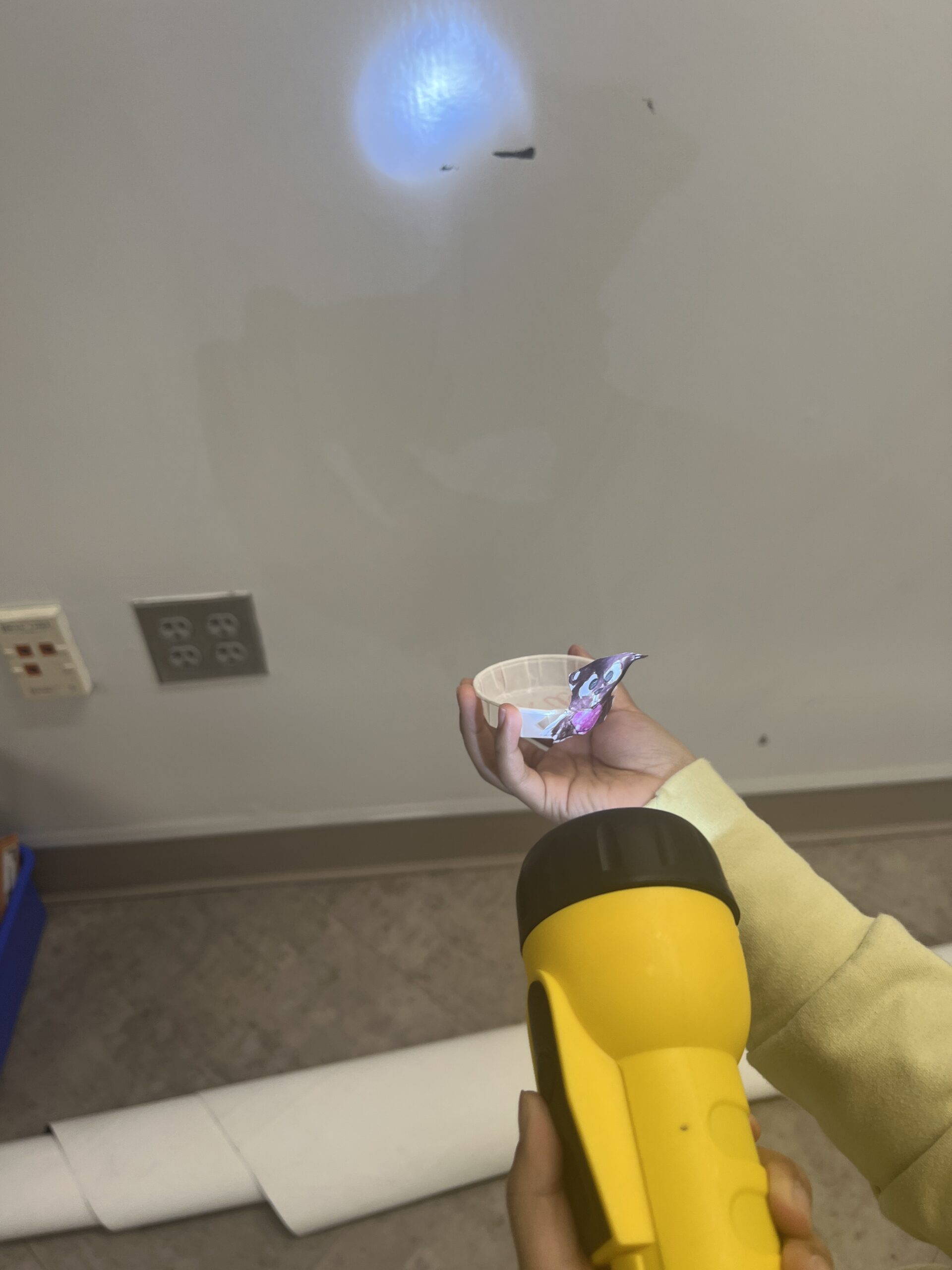
44. Cast a tall shadow
Explore light and shadow by having students experiment with the angle of their flashlight to see how tall of a shadow they’re able to cast. Add a bonus connection to Groundhog Day and how this holiday is centered around a groundhog seeing its shadow!
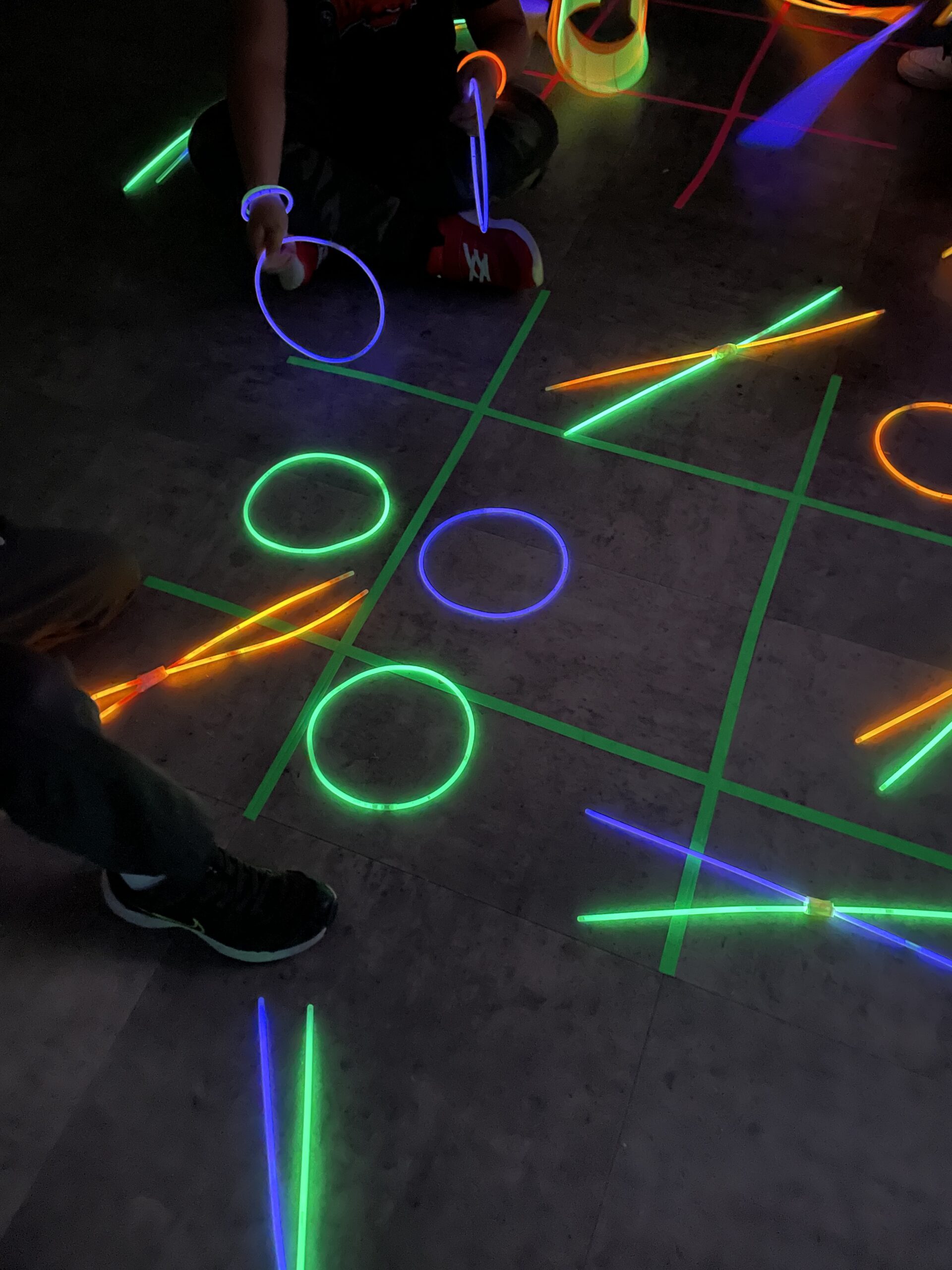
45. Host a glow party
Discuss how different things in the sky can be observed during the day, night, or both. Host a class glow party to celebrate things seen during the night with various glowing activities.
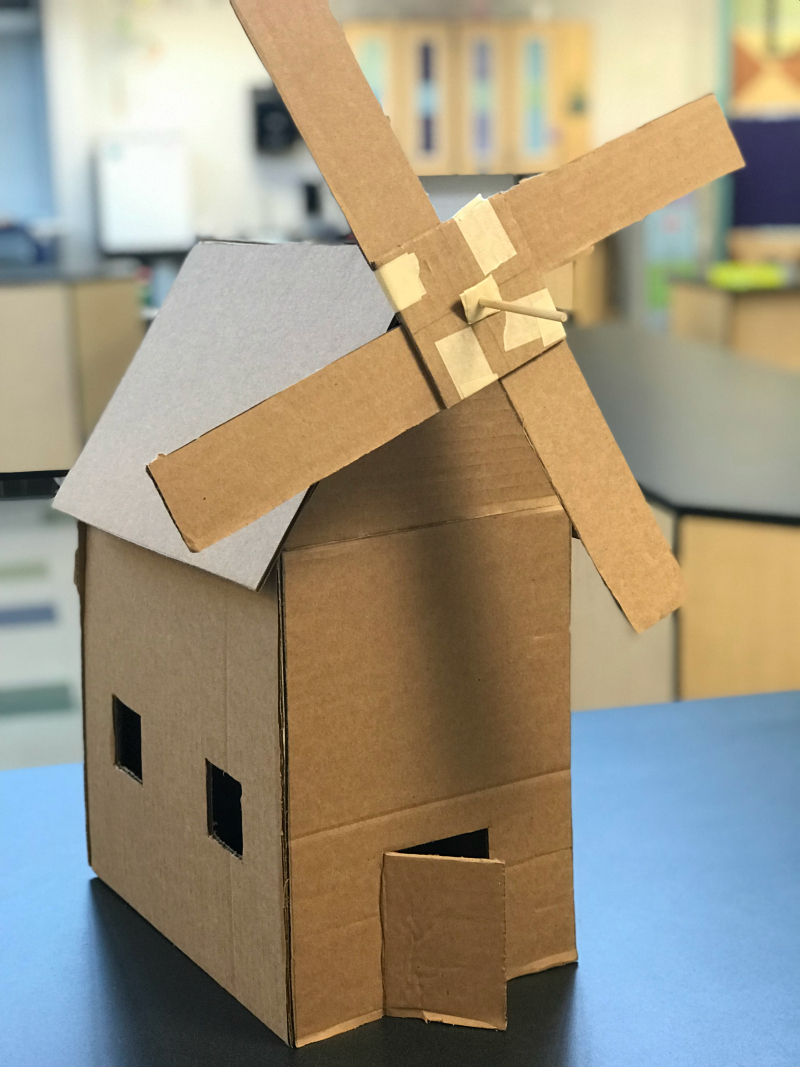
46. Give kids a maker cart and a pile of cardboard
You don’t need a whole lot of fancy supplies to create a STEM cart or makerspace. Scissors, tape, glue, wood craft sticks, straws—basic items like these combined with a stack of cardboard can inspire kids to create all sorts of amazing projects! See how these STEM activities work here.
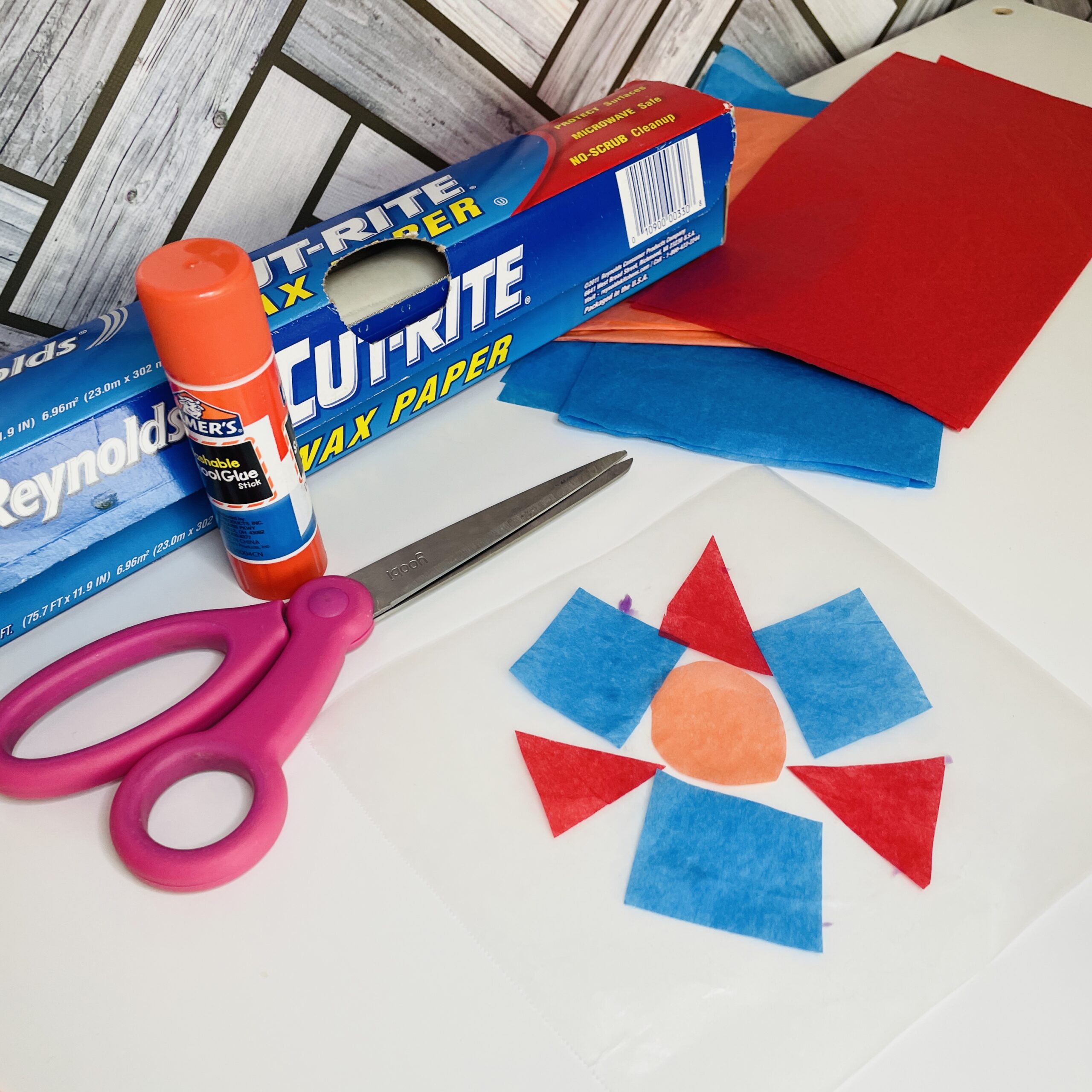
47. Design stained glass
Using examples from the real world, allow students to observe the patterns and shapes used to create intricate designs. Then using tissue paper and wax paper, students can create their own stained-glass design.
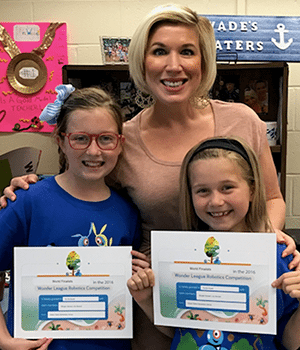
48. Start a school robotics team
Coding is one of the most valuable STEM activities you can include in your classroom plans. Set up a school robotics club and inspire kids to embrace their newfound skills! Learn how to set up your own club here.
49. Embrace the Hour of Code
The Hour of Code program was designed as a way to get all teachers to try just one hour of teaching and learning coding with their students. Originally, the Hour of Code event was held in December, but you can organize yours any time. Then, continue to learn using the huge number of resources on Hour of Code’s website.
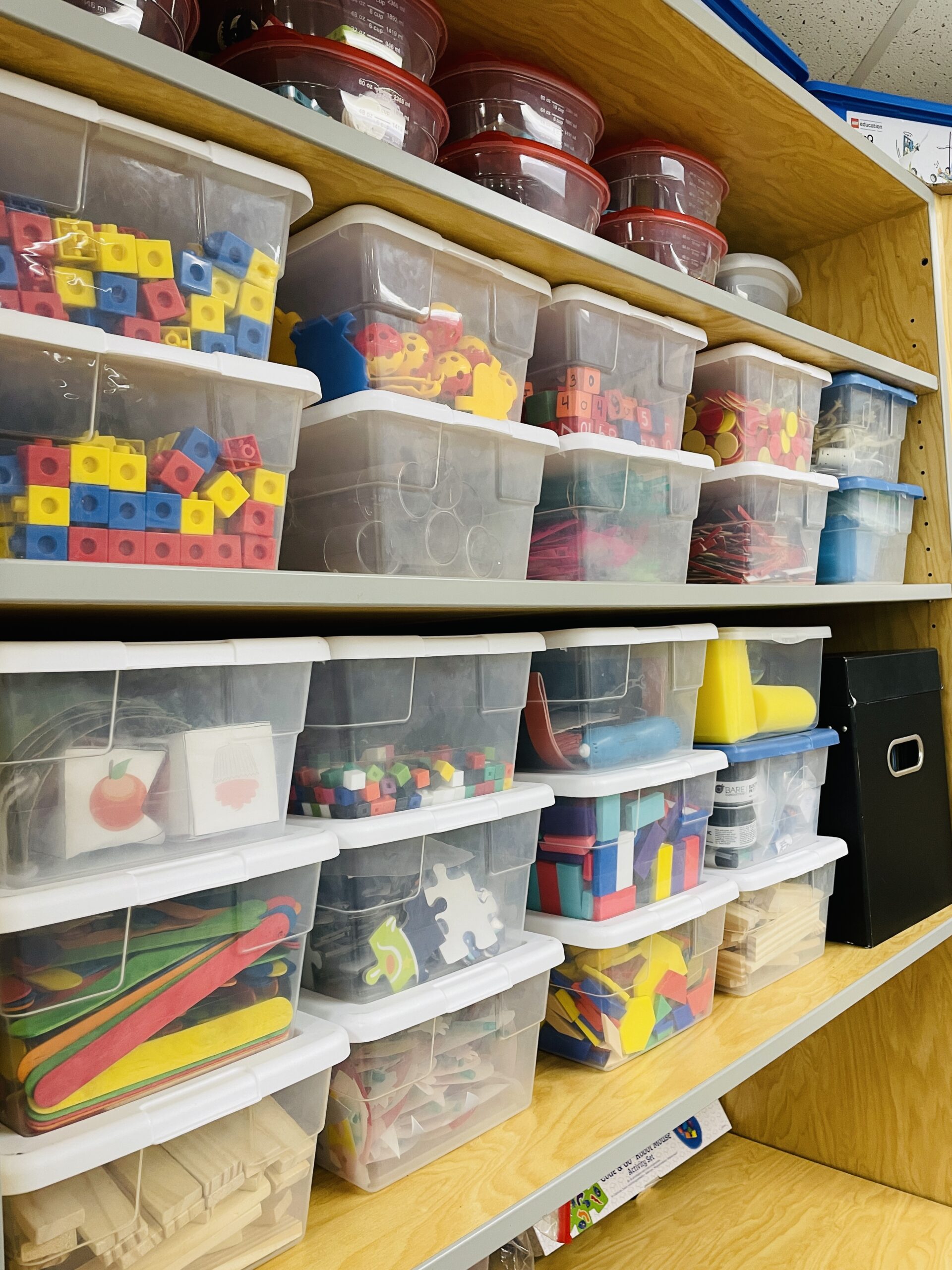
50. Allow students to free-build
Sometimes just giving kids different manipulative options and some time to build and explore is exactly what kids need. Let them create a challenge and see what they come up with!
What are your favorite STEM activities for kids? Come share in the We Are Teachers HELPLINE group on Facebook.
Plus, get free STEM posters for your classroom!
